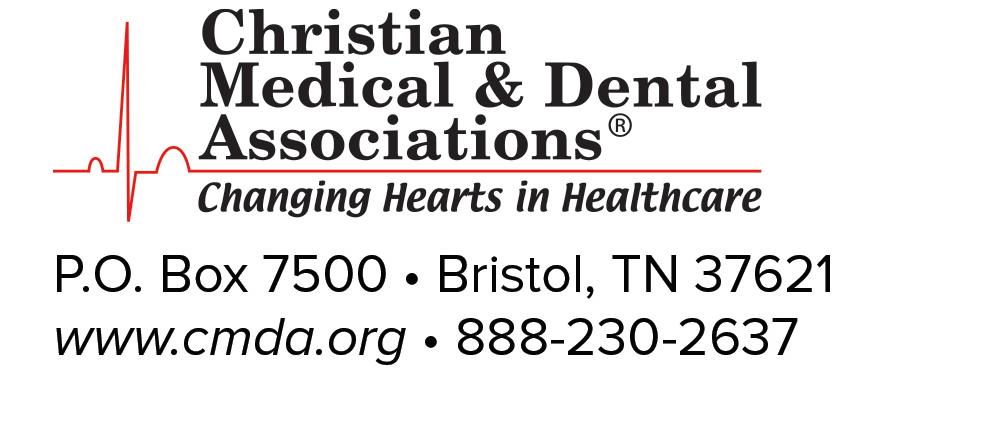Disciples in Dentistry







“But joyful are those who have the God of Israel as their helper, whose hope is in the Lord their God” (Psalm 146:5, NLT).
On my first day of service with CMDA in 2016, I attended the annual Healthcare Missions Leadership Summit hosted by CMDA and MedSend with CMDA CEO Emeritus Dr. David Stevens in Charlotte, North Carolina. We were welcomed by Dr. Joshua Bogunjoko, the International Director of Sudan Interior Mission (SIM), who challenged attendees to carefully monitor their joy levels in ministry. Dr. Bogunjoko gave his life to Christ under the influence of American medical missionaries in Nigeria but a few of those cross-cultural servants confused and frustrated him in the process. They seemed bitter and joyless as they served Christ in Africa, almost as if they were serving out a God-given life sentence for sins of their past. Joshua felt these missionaries were significant detractors from an otherwise powerful, gospelcentered ministry that impacted his life.
With that admonition in mind, I was quite pleased that our CMDA senior leadership team chose “expressing joy” as one of our five national ministry staff internal core values for 2020 and beyond. There have been numerous attacks on our joy since then, not the least of which has been the COVID pandemic’s impact upon our efforts to send Global Health Outreach (GHO) and Medical Education International (MEI) teams, to host regional/national meetings, to promote campus and community gatherings of healthcare professionals, etc.
Two experiences in late 2022 reminded me of the power of joy expressed in our lives. One was an interview with Dr. Scott Armistead, a family physician and CMDA campus advisor from Richmond, Virginia, who joined me on CMDA Matters, our weekly ministry podcast. After serving 16 years as a missionary in the Middle East, he accepted a staff teaching position at Virginia Commonwealth University (VCU) in 2016, the medical school in Richmond. In 2020 he was disciplined by his medical school administration for a discussion with a group of students about embodiment and the implications for their patients at VCU. Scott told them, “It is dehumanizing to our patients when we denigrate the body. We can’t let it happen. Truth is important for our patients.” Apparently one student in the group had a problem with Scott’s teaching which led to his subsequent disciplinary action. After spending six months on probation, and following the school’s prescribed focused learn-
ing experience, Scott’s contract was not renewed, and he was out looking for a job. Through it all, Scott has not lost his peace and has remained confident that God is in control. What is his secret? He said:
“To follow Jesus is going to be difficult! How do we navigate adversity in healthcare in the U.S.? As we think deeply about Christian joy, joy-strength will sustain us. God looks at us and delights in us and tells us that we belong to Him and that should bring joy for the believer.”

The other experience of joy impact involved my first CMDA tour of the Holy Land in November 2022, which Pam and I had the privilege to host, touring with 43 CMDA members and spouses. Our bus driver, Sharif, was Arab and Muslim and very accommodating throughout our nine days with him. We had the opportunity each day on the bus to hear from God’s Word and to sing numerous hymns and songs as a group together. We were a great CMDA choir! (I strongly recommend an experience on a CMDA biblical tour for all our members as the fellowship and the guides in Israel, Greece, Turkey and Italy are outstanding.) About a week into our tour, I noticed a new sign in the front window of our bus, right next to the sign with “CMDA group” displayed. The new paper had been printed by Sharif and read “JOY.” I believe our singing and our sweet Christian fellowship had made an impression upon this Arab bus driver—we were a bus full of joy! Our guide, Jeremy, asked me to make a request of the touring company that Sharif continue to drive for future CMDA groups. Jeremy shared with me privately that he sees a wide-open door for ministry and some “good soil” in this bus driver’s heart.
A final note about joy, the second fruit of the Holy Spirit in Galatians 5—it sometimes defies human understanding. “The apostles left the Sanhedrin, rejoicing because they had been counted worthy of suffering disgrace for the Name” (Acts 5:41). My prayer for you as a CMDA member is that joy-strength from God’s Spirit will sustain you throughout 2023, especially when you face inevitable adversity coming from a roaring lion whose time is limited.
Mike Chupp, MD, FACS, is the CEO of CMDA. He graduated with his medical degree from Indiana University in 1988 and completed a general surgery residency at Methodist Hospital in 1993. From 1993 to 2016, he was a missionary member of Southwestern Medical Clinic in St. Joseph, Michigan, while also serving as a career missionary at Tenwek Mission Hospital in Kenya.
EDITOR
Rebeka Honeycutt
EDITORIAL COMMITTEE
Gregg Albers, MD
John Crouch, MD
Autumn Dawn Galbreath, MD
Curtis E. Harris, MD, JD
Van Haywood, DMD
Rebecca Klint-Townsend, MD
Debby Read, RN
AD SALES
423-844-1000

Ahaa! Design + Production PRINTING
Pulp
CMDA is a member of the Evangelical Council for Financial Accountability (ECFA).
CMDA Today™, registered with the U.S. Patent and Trademark Office. Spring 2023, Volume LIV, No.

1. Printed in the United States of America. Published four times each year by the Christian Medical & Dental Associations® at 2604 Highway 421, Bristol, TN 37620. Copyright© 2023, Christian Medical & Dental Associations®. All Rights Reserved. Distributed free to CMDA members. Non-doctors (US) are welcome to subscribe at a rate of $35 per year ($40 per year, international). Standard presort postage paid at Bristol, Tennessee.
Undesignated Scripture references are taken from THE HOLY BIBLE, NEW INTERNATIONAL VERSION®, NIV®
Copyright © 1973, 1978, 1984, 2011 by Biblica, Inc.® Used by permission. All rights reserved worldwide. Other versions are noted in the text.

P.O. Box 7500, Bristol, TN 37621 888-230-2637 main@cmda.org•www.cmda.org
If you are interested in submitting articles to be considered for publication, visit www.cmda.org/publications for submission guidelines and details. Articles and letters published represent the opinions of the authors and do not necessarily reflect the official policy of the Christian Medical & Dental Associations. Acceptance of paid advertising from any source does not necessarily imply the endorsement of a particular program, product or service by CMDA. Any technical information, advice or instruction provided in this publication is for the benefit of our readers, without any guarantee with respect to results they may experience with regard to the same. Implementation of the same is the decision of the reader and at his or her own risk. CMDA cannot be responsible for any untoward results experienced as a result of following or attempting to follow said information, advice or instruction.
CMDA is excited to introduce Connie Fox as Chief Financial Officer where he will be responsible for CMDA’s financial planning and leading the financial team. Connie graduated from Virginia Tech in 1989 with a Bachelor of Science degree in accounting. He served as the assistant controller at Northside Hospital in Johnson City, Tennessee from 1991 to 1997. God presented an opportunity for Connie to join the staff at CMDA as Controller in 1997, before stepping into the role as Chief Financial Officer in 2022.
“I feel that CMDA is exactly where God wants me,” said Mr. Fox. “I’ve shared several times in chapel; I called twice to decline a second interview with CMDS in 1997, and both calls were never answered. I took the second interview, was offered the job as Controller, and accepted. One of the best decisions of my life.”
Today, Connie attends Discovery Church in Bristol, Tennessee, where he serves on the Elder Board and the Operations Team. He has been a member of The Gideons International for 23 years, where he currently serves as church speaker and treasurer for the local Bristol chapter. He has been married to his high school sweetheart, Kelly, for 33 years. Together, Connie and Kelly have two daughters, Sara married to Jason, and Emily married to Logan. They also cherish their grandson, Emmitt.
CMDA is excited to announce Scott Ledford as Chief Operating Officer where he will oversee daily operational procedures and establish policies that promote CMDA’s values.
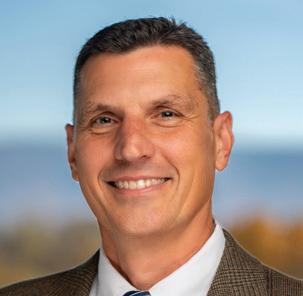

A native of East Tennessee, Scott graduated from East Tennessee State University in 1994 and began his career in human resources with Burlington Industries, a North Carolina-based textile manufacturer. In 1998, he returned to the Tri-Cities to begin a 23+ year tenure with General Shale, the nation’s largest brick and masonry materials manufacturer, where he worked in a variety of capacities within human resources, ultimately overseeing the company’s North American human resources operations. In April 2022, God opened a door allowing Scott to become CMDA’s Director of Human Resources.
Scott and his family are active members of Fellowship Baptist Church, where he serves as a Deacon and Chair of the Personnel Committee. He also serves on a variety of community boards, including 2023 Chair of the Johnson City, Tennessee Chamber of Commerce. Scott and his wife Tracie have been married for 27 years and have two adult children: Lauren and Drew.
In fall 2022, CMDA welcomed Wes Ehrhart as the new Western Regional Director and Connor Ham as the new Midwest Regional Director. During their transition into these roles, a reevaluation of our regional communities took place. It was determined that the Dakotas fit geographically better in the Midwest Region than the Western Region. North and South Dakota are categorized as Midwest states with Connor Ham as Regional Director. CMDA believes this will enhance support for members in the Dakotas and provide more opportunities to attend regional events in cities closer than they are in the West. Connor looks forward to connecting with as many of you as possible over the next year.
To learn more about your regional director and get connected in your region, visit www.cmda.org/ccm.
In November 2022, CMDA celebrated a final victory in its federal court case to protect the religious beliefs of healthcare professionals from being forced to perform gender-transition procedures or abortions against their conscience and best medical judgment.
“This key legal battle is a hard-fought victory that impacts and protects the rights of healthcare professionals across this country,” said CMDA CEO Mike Chupp, MD, FACS. “After more than six years of fighting this case in federal court, we have now set a national precedent and ensured we can continue to provide the best and safest care to our patients.”
For the last six years, the U.S. Department of Health and Human Services has pushed a controversial “transgender mandate,” which threatens religious doctors and hospitals with penalties unless they perform gender transitions in violation of their conscience in medical judgment. The case of Franciscan Alliance v. Becerra was brought by CMDA, a group of religious hospitals and nine states, and it appeared poised to head to the U.S. Supreme Court after a unanimous victory in federal appeals court in August 2022. In November 2022, the Biden administration gave up on seeking Supreme Court review—meaning this victory for religious liberty now stands as a powerful precedent nationwide.
“The Obama Administration issued the mandate six years ago and tried to apply it to virtually every doctor nationwide. It would have required doctors to perform gender transitions on any patient, including children. The medical professionals that challenged the mandate happily serve all patients, regardless of sex or gender identity. But they can’t perform these procedures, which are widely disputed in the medical community. Many see the procedures as
physically harmful with no psychological benefits—especially when performed on children,” said Luke Goodrich, vice president and senior counsel at Becket. CMDA was represented in this case by Becket, a non-profit, public interest legal and educational institution.
“CMDA’s national polling proves that healthcare professionals of faith are committed to caring for all patients with dignity and respect,” said CMDA Senior Vice President of Bioethics and Public Policy Jeffrey Barrows, DO, MA (Ethics), who is an OB/Gyn. “And our ability to compassionately treat our patients and exercise sound medical judgment is now protected at a critical juncture when the evidence against gender-affirming care continues to pile up.”
Earlier in 2022, the United Kingdom announced it would be shutting down its state-run youth gendertransition clinic, following a report identifying the risks from its “unquestioning affirmative approach.” And in November 2022, the New York Times highlighted the “emerging evidence of potential harm” from the “puberty blockers” that are typically prescribed as the first step to gender transition, noting they can lead to dangerously low bone density and commit children to the transition path, even if they would desist without intervention.
“No one should be forced to violate their conscience or sincere religious beliefs,” said Dr. Barrows. “Most importantly, each patient we treat is better off when healthcare professionals who are motivated by their convictions are free to provide quality care without being forced to check those convictions at the door.”
For more information about the case, visit www.cmda. org/transgendermandate
Have you downloaded CMDA Go yet? Our mobile app, CMDA Go, is now available to download on Apple and Android mobile devices. Visit your device’s app store to download it today.
In the CMDA Go app, you can set up your personal CMDA profile, check out the latest news from CMDA, listen to CMDA Matters and other podcasts, renew your membership and make your dues payments, access a variety of downloadable resources, interact with other members through the discussion forms and join group chats.
For more information, visit www.cmda.org/app.
The CMDA Learning Center offers complimentary continuing education courses for CMDA members. This online resource is continuing to grow with new courses to help you in your practice as a Christian healthcare professional.
More than 100 hours of continuing education are now available at NO COST to CMDA members. For more information and to access the CMDA Learning Center, visit www.cmda.org/learning.
Are you listening to CMDA’s podcast with CEO Dr. Mike Chupp?
CMDA Matters is our popular weekly podcast with the latest news from CMDA and healthcare. A new episode is released each Thursday, and interview topics include bioethics, healthcare missions, financial stewardship, marriage, family, public policy updates and much more. Plus, you’ll get recommendations for new books, conferences and other resources designed to help you as a Christian in healthcare.
Listen to CMDA Matters on your smartphone, your computer, your tablet…wherever you are and whenever you want. For more information, visit www.cmda.org/cmdamatters.
New to the resources provided by CMDA is a new video series called Faith Prescriptions. This 25-part video series provides training on everything from LGBTQ issues in the healthcare arena, to praying with your patients and sharing your faith in ethical and appropriate ways with colleagues and patients.
Faith Prescriptions is a revision of the program Grace Prescriptions, which has been in circulation for several years on DVD. This new, updated and improved series is video-on-demand. It is free to CMDA members and simply requires your member login and password to access all sessions, as well as all video training sessions, within the CMDA Learning Center.
Get started today by visiting www.cmda.org/learning.
As Christians, we are called to speak truth into ethical issues and courageously stand up for what’s morally right according to our beliefs. But in order to engage others in these discussions with grace and kindness, first we need to arm ourselves with knowledge and understanding of each of these topics.
Bridging the Gap: Where Medical Science and Church Meet is a small group study developed by expert healthcare professionals on CMDA’s Church Commission. The curriculum is designed to ask difficult, thought-provoking questions as we seek the truth found in God’s Word about the ethical issues facing Christians today. Topics include addictions, beginning of life, end of life, gender identity, right of conscience and sexuality.
For more information and to download the curriculum, visit www. cmda.org/bridgingthegap.
CAMPUS & COMMUNITY MINISTRIES
A network of more than 80 local graduate ministries and more than 320 campus chapters provide opportunities for members to connect and live out their Christian faith in their practices, on campus and in their communities.

cmda.org/ccm
DENTAL MINISTRIES
An outreach supporting dental professionals and students as they integrate Christian faith into all aspects of their lives, while providing opportunities for training and equipping. Also includes the CMDA Dental Residency [+] program.




cmda.org/dentist
SIDE BY SIDE
A network of more than 90 local chapters to encourage, support and minister to women in healthcare marriages through fellowship, Bible
TRAFFICKING
An effort to abolish human trafficking through policy initiatives, education, raising awareness and providing clinical services to victims. cmda.org/humantrafficking
ETHICS HOTLINE
An on-call program to assist members facing difficult patient care decisions, provided by Christian physician ethicists. You can easily reach the hotline at 423-844-1000. cmda.org/hotline
LEGAL ADVOCACY
A cooperative endeavor that includes partner-


The core of our ministry happens in local communities and on campuses where healthcare professionals and students live out the character of Christ. Our campus and community ministries are dedicated to changing hearts in healthcare through evangelism and discipleship.
study and prayer. Each local chapter meets the unique and individual needs of its community.
cmda.org/sidebyside
A wide variety of sections formed to equip, network and provide a voice for CMDA members to their areas of specialty or service. Organized by CMDA members who wish to connect with their colleagues, these sections include:
• Addiction Medicine Section
• Christian Academic Physicians and Scientists
• Christian Healthcare Executive Collaborative
• Christian Physical Rehab Professionals
• Christian Surgeons Fellowship
• Coalition of Christian Nurse Practitioners
• Dental Hygienists Section
• Dermatology Section
• Family Medicine Section
• Fellowship of Christian Optometrists

• Fellowship of Christian Physician Assistants
• Fellowship of Christian Plastic and Reconstructive Surgeons
• Neurology Section
• Obstetrics and Gynecology Section
• Psychiatry Section
• Ultrasound Education Section cmda.org/specialtysections
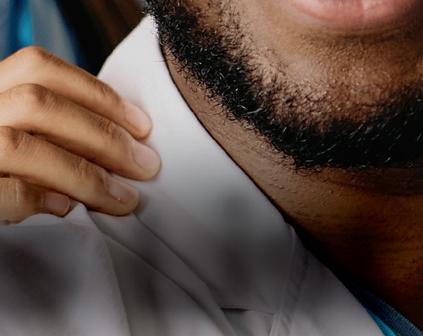
CHRIST
A ministry that encourages and supports Christian women physicians and dentists in the unique challenges women face. It is a key resource for women in integrating their personal, professional and spiritual lives.






cmda.org/wpdc
We serve as a Christian voice through our advocacy efforts on the state and federal levels and partnerships with like-minded organizations. We provide valuable resources on current healthcare topics, and we equip Christians in healthcare to defend and care for our most vulnerable patients.
ships with legal firms, participation in amicus briefs, collaboration with the Alliance for Hippocratic Medicine and more to advocate for life and human dignity in important court cases.
STATE ADVOCACY PROGRAM
An initiative with the American Academy of Medical Ethics dedicated to preserving and promoting the ethical standards outlined in the original Hippocratic Oath through life-honoring legislation at the state level. ethicalhealthcare.org
VOICE OF CMDA MEDIA TRAINING
A workshop to learn how to prepare for and
give television, radio and print media interviews that offer Christian perspectives on ethical questions and general health topics.
cmda.org/mediatraining
CMDA’s liasion with Congress, the White House, federal agencies and others in Washington, D.C. Provides opportunities for federal employment, testimony and committee service. Includes Freedom2Care, a coalition to advance conscience freedoms and provide other legislative tools.
cmda.org/washington
A program designed to serve domestic and international healthcare missionaries in their work, as well as aid in the recruitment, training and retention of career healthcare missionaries. Also plans regional mission conferences to engage healthcare professionals and trainees in short-term and long-term missions. cmda.org/cahm
An annual 10-day multiple track continuing
CENTER FOR WELL-BEING
A ministry that helps empower and lead healthcare professionals to combat issues like burnout in order to optimize well-being. cmda.org/wellbeing
CONTINUING EDUCATION
Through live events and the online CMDA Learning Center, we offer continuing education courses accredited by the ACCME to provide AMA PRA Category 1 Credit™. We are also an Academy of General Dentistry Approved PACE Provider. cmda.org/ce
EVENTS AND TOURS
A variety of more than 40 local, regional and national conferences and tours each year for training and networking, including CMDA’s National Convention, Biblical Tours and more. cmda.org/events
LIFE & LEADERSHIP COACHING
A personalized resource with certified coaches who assist healthcare professionals in finding balance in addressing both the professional and personal issues of everyday life.
cmda.org/coaching
LIFE & HEALTH RESOURCES
A distribution service for CMDA-produced and recommended resources through the CMDA Bookstore.
cmda.org/store
CMDA is dedicated to domestic and international healthcare missions, both short-term and long-term. We provide opportunities for healthcare professionals to use their God-given skills to meet the needs of others around the world and share the gospel with them.
education and spiritual renewal conference for healthcare missionaries currently serving in international mission outreaches.
Opportunities for healthcare professionals to serve and minister to the underserved in their local communities here in the U.S. cmda.org/missions
GLOBAL HEALTH OUTREACH
A short-term missions program that sends 40 to 50 medical, dental and surgical teams around the world each year. GHO disciples participants, grows national churches, shares
the gospel and provides care to the poor.
cmda.org/gho
A short-term missions program that sends around 40 teams each year to teach in academic or clinical settings to bring transformation by advancing medical, dental, bioethical and educational knowledge while sharing the gospel.
cmda.org/mei
MARRIAGE ENRICHMENT
A ministry that provides four to six conferences per year to address the unique needs and stresses of healthcare marriages, offering couples the opportunity to nurture and grow in their marital relationships.
cmda.org/marriage
A program assisting healthcare professionals facing malpractice lawsuits with prayer, educational resources and encouragement from a network of healthcare professionals who have faced malpractice suits themselves.
cmda.org/mmm
MEMBER SEARCH
The public and our members can search through our extensive database to help find a Christian healthcare professional in their local areas.
cmda.org/members
MEMBER SERVICES
We assist our members with information regarding our resources, as well as membership recruitment, renewals and retention.
cmda.org/members
A recruiting service that brings together Christian healthcare professionals and practices throughout the U.S. to enhance their ministry and advance the kingdom of God.
cmda.org/placement
CMDA’s podcast network includes a variety of regularly released podcasts focusing on today’s important healthcare topics, missions, dentistry, students and more, including CMDA Matters, Dental Sound Bytes and more.
cmda.org/podcasts
A wide variety of informational print and electronic resources published by CMDA to encourage, equip and motivate readers, including CMDA Today, Weekly Devotions and others.
cmda.org/publications
SPEAKER’S REFERRAL BUREAU
An online self-referral speaker’s bureau of CMDA members who can be contacted for local, regional or national events. These recommended speakers are available to address a variety of topics and issues.
cmda.org/speakers
A service that encourages and aids CMDA members to be good stewards of the gifts given them by God, with resources to protect their assets and provide for loved ones while building the kingdom.
cmda.org/giving
CMDA’s wide variety of resources and services help us to fulfill our mission to motivate, educate and equip Christian healthcare professionals and students. These resources and services give our members the knowledge and tools they need to effectively serve the Lord.
CMDA’s wide variety of resources and services help us to fulfill our mission to motivate, educate and equip Christian healthcare professionals and students. These resources and services give our members the knowledge and tools they need to effectively serve the Lord.
the hope and healing of Christ to the world through healthcare professionals
International CMDA (ICMDA) will be holding its World Congress in Arusha, Tanzania on June 20-25, 2023. This conference is an international gathering of Christian physicians and dentists which has been held since 1963. The purpose of each congress is to be a means to further the work of the Holy Spirit around the world, to further the vision and mission of ICMDA and to strengthen, grow and develop the work in our 14 world regions. CMDA CEO Dr. Mike Chupp will be one of the main conference speakers. Register now at www.cmda.org/events
Are you ready to live missionally as a healthcare student, trainee or professional? Join us for Remedy23: Healthcare on Mission, which will be held on April 14-15 at Liberty University.

Missional living in healthcare has always involved swimming upstream, but it seems to be getting harder. Our culture, workplaces and institutions are not as friendly to faith as they once were. Living on mission for Jesus and setting biblical principles as our true north can be hard. Remedy23 will challenge you to grow in your understanding of what missional living looks like. You’ll hear from missionaries, educators and thought leaders. You’ll have opportunities to explore opportunities to serve and expand your skills and knowledge. We’ll worship God together, inviting Him to shape our hearts and guide our steps.
For some, missional living will ultimately involve a plane ride to move to a far-off place for long-term service. For others, missional living happens in our own communities, institutions and workplaces here in the U.S. What does it look like for you? Join us for Remedy23 and find out! For more information and to register, visit www.cmda.org/remedy
Dates and locations are subject to change. For a full list of upcoming CMDA events, visit www.cmda.org/events
501 Foundations in Coaching
March 31-April 1, 2023 • Virtual
2023 CMDA National Convention
April 27-30, 2023 • Cincinnati, Ohio Area
Greece Tour – In the Footsteps of Paul
May 6-11, 2023 • Greece
Critical Conversations on Mental Health
August 4-5, 2023 • Dallas, Texas
Voice of CMDA Media Training
August 18-19, 2023 • Bristol, Tennessee
Women Physicians & Dentists in Christ 2023 Conference
September 7-10, 2023 • Hilton Head Island, South Carolina
Pre-field Orientation for New Healthcare Missionaries
November 6-9, 2023 • Louisville, Kentucky
Our hearts are with the family members of the following CMDA members who have passed in recent months. We thank them for their support of CMDA and their service to Christ.
• Carolyn S. Hixson, MD, BS, MS – Delaware, Ohio Member since 1957
• Dara Welborn, MD – Hendersonville, Nevada Member since 2007
• Alvin Wiens, MD – Mountain Lake, Minnesota Member since 1996
Gifts received October through December 2022
Hallie H. Herring in honor of Jonathon Jussely
Kirsten Lindberg in honor of Rick Ristoff
Catherine & Charles Ridley in memory of Cliff Mares
Mrs. Harriett F. Comer in memory of Cliff Mares
Mr. John Hixson in memory of Dr. Carolyn Hixson
Dr. John M. Long in honor of Ronny & Barbara Baker
For more information about honorarium and memoriam gifts, please contact stewardship@cmda.org

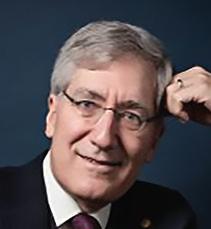


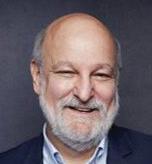









 Jerome Adams, MD
Darrell Bock, PhD
Kathryn Butler, MD Katy Faust
Prof. Robert George Richard Stearns
Modern Day Cure Worship Leaders
Jerome Adams, MD
Darrell Bock, PhD
Kathryn Butler, MD Katy Faust
Prof. Robert George Richard Stearns
Modern Day Cure Worship Leaders

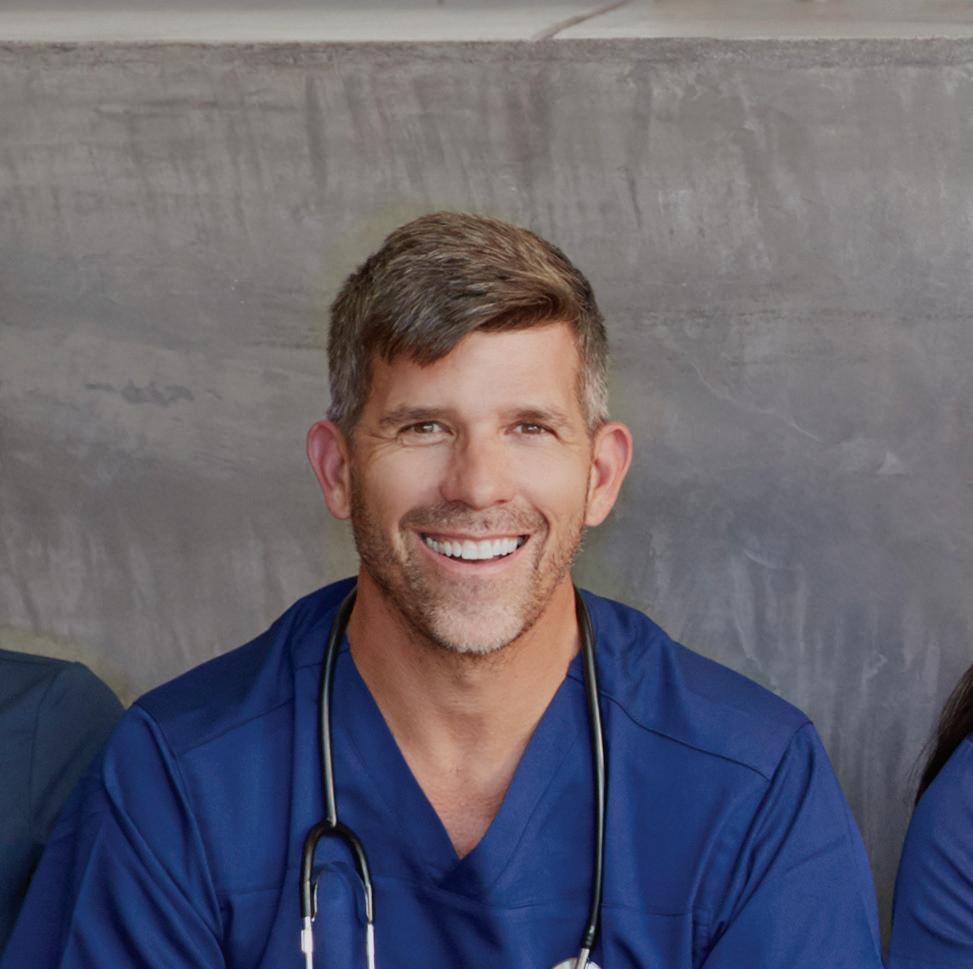



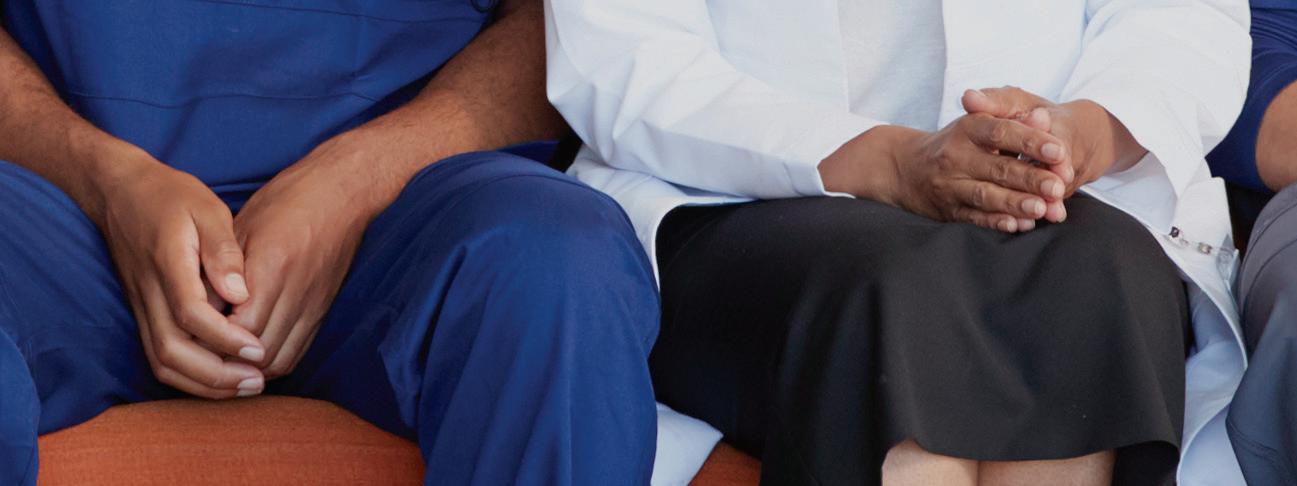


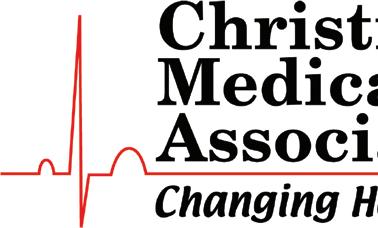






When we meet someone new, one of the first questions we often ask is, “What do you do?” What we do is often the thing that largely defines us in broad strokes or gives us our identity. “I am a ____ (physician, dentist, midwife, teacher, stay at home mother, CEO, poet, waterslide tester [yes, that’s a real job!]).” You get the idea.
I have often been curious as to how Jesus would have answered that very question. “I am a carpenter.” Possibly—or maybe He could have said an artisan, a circuit Rabbi, a radical, a storyteller, a healer, a raiser of the dead, an exorcist, a snake crusher, the Savior of the world or the Prince of Peace. Regardless of His answer, it is worth recognizing that in our current society, what we do is typically the primary thing we say we are.
At the CMDA Dental Residency [+] Program, we answer the question, “What do you do?” with, “I do dentistry, but I am a follower of Jesus.” We believe God commissioned all of us to use our talents and skills to love and serve others. What we do (dentistry) is the avenue where we live out what Jesus told us to do (love our neighbors)—but our identity is not expressly held in our status as dentists or clinicians. We are disciples first.
Making this subtle distinction is what led CMDA’s former Vice President of Dental Ministries Dr. Jeff Amstutz down a path to address this very idea almost 10 years ago. “What if we were able to create a dental residency program that brought in young dentists and trained them by providing a unique blend of exceptional clinical experience and discipleship?” The idea was to use dentistry as a means to serve the underserved. On an even deeper level, residents would intentionally live cross-culturally in lower socio-economic neighborhoods of high need in urban communities in Memphis, Tennessee. We believe being proximate to the poor—to the suffering and the marginalized and the oppressed and the sojourners—is fundamental to our work as we seek to act justly, love mercy and walk humbly (Micah 6:8). We cannot expect to see inequality and injustice transformed if we isolate ourselves in places that are safe and removed and disconnected. Our patients are our neighbors. The problems of my neighborhood are my problems.
Bryan Stevenson, a human rights lawyer, founder of the Equal Justice Initiative and author of award-winning New York Times bestseller Just Mercy, said this, “It is actually in proximity to the poor that we hear things that we won’t otherwise hear, that we’ll see things we won’t otherwise see. The things we hear and see are critical to our knowledge and our capacity to problem solve.” We aren’t going to see change in the world if we are too uncomfortable to venture beyond the safety of our bubbles. Yes, we want to help close the healthcare gap and provide excellent dental care to the poor, but we also want to rub shoulders with the people we are serving outside of the clinic. We want to hear their stories—mourn with those who mourn or advocate for those who are being mistreated. It is only through proximity to our patients that we can begin to truly understand their lives
and are best able to extend the healing hand of Jesus. We can do a whole lot of good in our lives, but if we aren’t loving our neighbors, it is all nothing (1 Corinthians 13:1-3).
As Paul states in Ephesians 4:12, we believe we are commissioned by Christ to equip His people for works of service, so that the body of Christ may be built up. Our work is to prepare dentists to serve the dental needs of the poor, in urban and rural settings alike—in the United States and even to the far reaches of the globe. We equip dentists with the skills, character and community to share Jesus through dental excellence.

The CMDA Dental Residency [+] Program is currently located amongst the blues and BBQ of culturally rich Memphis, Tennessee. We are a partnership between CMDA and Christ Community Health Services (CCHS). CCHS is a Federally Qualified Healthcare Center (FQHC) that started as a humble medical clinic in 1995. Through the grace of God, CCHS has grown into one of the largest faith-based safety-net health centers in the nation and the largest provider of healthcare to the underserved in Shelby County across eight locations—including five dental clinics, a women’s health center, a mobile medical van for the homeless and five pharmacies. CCHS is standing in the gap, delivering quality healthcare and spiritual healing to those of our community who need it most and would otherwise be unable to get it.
There are three foundational elements to the [+] Program framework: Discipleship, Community and Dental Excellence.
That is, an emphasis on being and making disciples, living in and loving on our neighborhood and completing the NYU Langone Advanced Education in General Dentistry (AEGD) Residency with clinical training at CCHS dental. The residency program is a three-year commitment, where young dentists complete the AEGD residency in Year One while living in community and receiving clinical training at CCHS in multiple clinics. The clinics see the majority of our city’s refugee and immigrant populations, giving residents incredible opportunities to love people (from several tribes and tongues), which also feels like doing dentistry on the mission field at times! Then in Year Two and Year Three, they are hired as full-time dentists at CCHS and can apply for a loan repayment scholarship through NHSC. Our second- and third-year dentists continue to learn about practice management, train other incoming residents, grow in leadership and clinical competence and complete a month-long international rotation. This is a four-week short term trip where residents gain cross-cultural exposure to dentistry and discipleship in various contexts. Residents have served in countries in Africa and the Middle East.
So, what exactly is the “Plus” of the [+] Program? It is the invitation to join a tightknit community of like-minded disciples and their families (known as the [+] Family). It is an invitation to be a part of something bigger than yourself. It is a place where you can practice living out the gospel in all aspects of your life. It is designed to put you into proximity with people and neighborhoods you would otherwise drive right past.
“Mytraining at Christ Community Health Services (CCHS) has been formative for myclinicalpracticeandhasgivenmethe toolstoconnectwithmypatientsclinicallyandspiritually. Asafederallyqualifiedhealthcenter,CCHShasmadeitpossibletoservethosewiththegreatestaccesstocareneeds inMemphis,TennesseeandtheLordhasusedthe[+]Programtoblessourpatientsandme.
One of the most practical ways I have grown is through beingsensitivetotheSpiritduringpatientencounters.The [+]ProgramhasbuiltinrhythmsoftimespentintheWord, listeningtoGodthroughScripture,prayerandmission,as wellasaccountabilitythroughafamilyofbelieverswholove Jesus,dentistryandservingthemarginalizedcommunities inMemphis,Tennessee.Iwasbothtaughtandencouraged toprayforallmypatientseveryday.ThishasledtoopportunitiestolettheLordleadmyprayerstoblessmypatients.
During this past year the Lord used a broken relationship inmyownfamilythatHehelpedtorestore.Afterthebreakthrough,thenextweek,oneofmypatientsaskedforprayer forhealingofherrelationshipwithherdaughter.Iwasable toprayboldlyandencourageherbecauseIhadexperienced God’spowerinmyownlife.
The Lord helped to use my own family and mentors to changehowIcareformypatients.Iamabletoseemypatients as my fellow brothers and sisters who deserve excellent,compassionatecare.Justacoupleofweeksago,a patientandhermotherpresentedtoourclinicforanemergencyexam.Hermotherhadonlyonedaytotakeoffwork andtheycouldonlyaffordtopayforthecostoftheappointment,butwewereabletoextractthedecayedtooth,alleviatethepainandtreatthesourceofthepatient’spainwhile dealing with fear and other behavioral challenges. This sweetopportunitywasadirectresultofthesupportIhave receivedasaDental[+]resident.
Godhasbeenfaithfultochangemyheartandattitudestowardservingvulnerablepatientpopulations.Hehasrevealed Himselftomypatientsthroughprayerandbyallowingmeto participateinHisworkofhealingthroughdentistry.”

“Thisislife-changing!”,mypatientexclaimedwhen I showed him his two upper front teeth. The blackholeswhichhadpreviouslybeensoprominentwerenowreplacedwithwhiterestorations.Ismiledunder mymaskandthankedGodfortheprivilegeofhelpingtoreflect inthisman’sappearancewhatHehadalreadydoneinhisheart. Afteryearsofdrugaddictionanddentalneglect,Godhadcalled mypatientoutofdarknessandplantedhimfirmlyintothekingdom.Theoldhadpassedaway,thenewhadcome(2Corinthians 5:17)—buttherewerestillscars,mostnoticeablyinhisteeth.By removingthesescars,Iwashelpingthismanandtherestofthe worldseehimhowGodseeshim—clean,whole,anewcreation. UnlikeGod’ssavingworkinthisman’slife,whatIdidtohisteeth mayfail.Theymaystain,formrecurrentdecayorchipawayand needreplacement.Thoughtheyarefarfromperfect,Iamgratefultohavehadtheopportunitytocreateinthisman’ssmileahint ofwhatistocomewhenChristmakesallthingsnew.
The significance to this “[+]” symbol is didactically defined through these five core competencies: Clinical Skills, Administrative/Operational, Spiritual Depth, Missional Living and Leadership. These competencies guide our three-year [+] curriculum, a portion of which is studied every Wednesday night, our “[+] Night.” This weekly gathering is a major contributor in developing community and discipleship as each resident, faculty member and their families gather to learn, pray, worship and share a meal. This simple rhythm of breaking bread together is one of the main factors that helps establish a strong sense of belonging within the program. It is the healthy cadence that comes with building a vibrant community of believers who are simply doing life together.
Every month also has one social event on the calendar. These are fun-filled, integral times that build up the community aspect of the [+] Family as we laugh and make memories together.
Throughout each year, residents also attend a number of conferences such as National Network for Oral Health Access (NNOHA), Christian Community Health Fellowship (CCHF), the Global Missions Health Conference (GMHC), CMDA’s Emerging Leaders in Dentistry and the CMDA National Convention. We also attend a conference that prays for and highlights unreached people groups in the 10/40 Window. If you happen to attend any of these, look for us and say hello!
The final distinctive component of the Memphis Dental Residency [+] Program is an invitation to be a part of a house church network. This house church network in Memphis started 20 years ago and has been used in powerful ways and seen impact
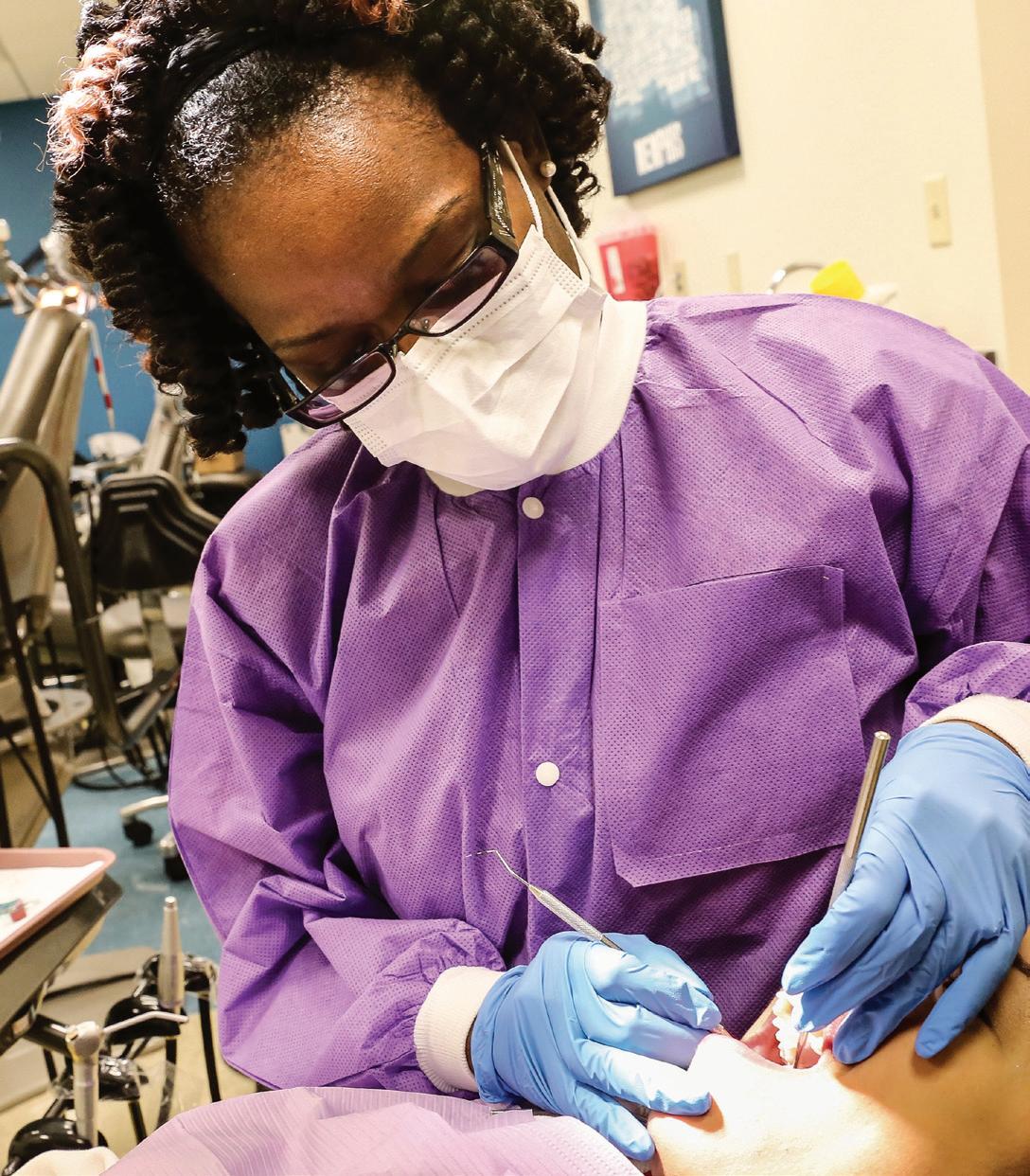
both locally and across the globe. Nathan Cook, who founded House Church, took what Westerners think of when they think of church and flipped it on its head. Instead of church being a place you go to and invite others to—he said, “What if we are actually the church? Then instead of it being a fixed place that you go to, it is a mobilized body that goes out. Now, as the church, we can go out to our neighborhoods, we can go out to serve in missions.” This is a great chance to “practice” how to be a church in the event residents end up living or serving in a context where a house church would be the only option for church. Learning how to be the church after a lifetime of going to church was one of the most impactful things I wrestled with in my own walk and with my family. The value from a discipleship standpoint of being a part of a house church network cannot be overstated.
CMDA envisions programs like the one at CCHS in Memphis starting in other U.S. locations and across the world. Maybe you feel God speaking to you and asking you to step up and help lead a future residency site—to come alongside young dentists and help train them in dental excellence and discipleship? Or maybe as a daring act of faith you are feeling a call to intentionally relocate your family in order to be in proximity to the poor? Maybe you are a dental student who went into dentistry because you wanted to help the poor but are feeling pressure to meet the expectations of your family?
Jesus spoke in parables about the great banquet in the kingdom of God (Luke 14:15-23; Matthew 22:1-14). When everything was prepared, many were invited, but they all in turn began making excuses. Some went to their fields (Matthew 22:5, Luke
14:18), others to their business (Matthew 22:5), another to try out his new team of oxen (Luke 14:19) and still another man said he just got married and couldn’t come (Luke 14:20). Everyone just had too much going on that they completely missed it.
The invitation stands for you to be a part of what God is doing through dentistry and discipleship. May God reveal any excuses you are making, like those in the parable. May we be willing for God to transform our hearts to be truly like His. May we love refugees in our city and advocate for people who have no voice in our society. May we truly live with sacrificial love. “If I give all I possess to the poor and give over my body to hardship that I may boast, but do not have love, I gain nothing” (1 Corinthians 13:3).
Are there things you value in your life more than the call from Jesus for us to love our neighbors? Nothing you have or have achieved was accomplished independent of the grace and mercy of God’s abundant and steadfast love in your life. Therefore, what can you do with the skills and talents God has given you, to give your best back to God? What sacrifices can you or should you be making? The Jesus version of that famous Spider-Man quote says, “Everyone to whom much was given, of him much will be required” (Luke 12:48). If you are reading this article, the fact is that to you, much has been given. What is it costing you to follow Jesus?

God is moving in Memphis. He is using the lives of the [+] residents and is pleased by their worship and the sacrifices they have made (Romans 12:1) to live and work in some incredibly hard places. Like Dr. Elise, who built and delivered a complete set of dentures for Miss Debbie, a woman in our neighborhood who had been homeless for several years. Like Dr. Scott, who spent a year visiting his neighbor London in prison, praying with him and encouraging him. Like Dr. Catherine, who helped some young boys on her street raise money by selling lemonade to buy a basketball hoop for their cul-de-sac. Like Dr. Mark and Kathryn, who fostered Jerrion for two years—or Dr. Chad and Dr. Kelsey, who adopted two babies from this city.
This is just a tiny glimpse of the work being done in Memphis. God is using ordinary people to bring about change in the world—the kingdom of heaven breaking through. Lives are being touched in profound ways because a handful of dentists and their families accepted the invitation. Don’t be among those who missed out on the great feast!
Dr. Katie Musser is CMDA’s Dental Residency Liaison, graduate alumni and faculty of CMDA’s Dental Residency [+] Program in Memphis, Tennessee. Her husband David has been part of the [+] Family for the last seven years while working in urban education and healthcare consulting project management. To find out more, visit www.dentalresidency.org or email Dr. Katie Musser at katie.musser@cmda.org.

“For many are invited, but few are chosen”
(Matthew 22:14).
 JeffreyJ.Barrows,DO,MA(Ethics)
JeffreyJ.Barrows,DO,MA(Ethics)
In January 2021, as part of its ongoing strategic plan, the CMDA Board of Trustees assigned nine strategic initiatives to the staff of CMDA for completion over a three-year period. One of the two initiatives placed under the advocacy department was the assignment for CMDA to align its advocacy with policies where Jesus has the greatest concern. This article will give a defense for Christian advocacy in the public square, then provide an overview of the process we used to attempt to discern the policy priorities of Jesus and conclude with a summary of our updated advocacy issues moving forward.
Many Christians are not convinced that a Christian organization like CMDA should use precious financial resources to advocate for biblical values within the public square. Prior to examining this question further, let me provide my definition of advocacy. I define advocacy broadly to include any action that supports policies in alignment with biblical principles as well as actions that oppose policies that violate biblical principles. These actions may be engaged at society’s individual, community or governmental levels. This definition expands advocacy far beyond the traditional work of legislative advocacy, or advocacy surrounding the writing and passing of laws at the state and federal levels.
Scriptural support for these advocacy actions is found in both Old and New Testament verses dealing with the concept of justice. Take, for example, the following Old Testament verse describing God’s actions:
FOOD AND CLOTHING”
(Deuteronomy 10:18, ESV).
God here is described as undertaking an action to address injustice affecting the orphan and widow. That action is spelled
“HE EXECUTES JUSTICE FOR THE FATHERLESS AND THE WIDOW, AND LOVES THE SOJOURNER, GIVING HIM
out for the sojourner but is left unspoken regarding the orphan and widow. An ongoing theme that emerges through the rest of the Old Testament is God’s repeated demand for justice for the oppressed. The following verse illustrates that concern:
“O LORD, YOU HEAR THE DESIRE OF THE AFFLICTED; YOU WILL STRENGTHEN THEIR HEART; YOU WILL INCLINE YOUR EAR TO DO JUSTICE TO THE FATHERLESS AND THE OPPRESSED, SO THAT MAN WHO IS OF THE EARTH MAY STRIKE TERROR NO MORE”
(Psalm 10:17-18, ESV).
Notice that the purpose of God hearing the desire of the afflicted is to do justice to the fatherless and the oppressed. Justice is achieved through action. Beyond God’s direct involvement in executing justice for the oppressed, God also commands His followers to engage in actions that address injustice:

“GIVE JUSTICE TO THE WEAK AND THE FATHERLESS; MAINTAIN THE RIGHT OF THE AFFLICTED AND THE DESTITUTE. RESCUE THE WEAK AND THE NEEDY; DELIVER THEM FROM THE HAND OF THE WICKED”
(Psalm 82:3-4, ESV, emphasis added).
The Hebrew word translated as “maintain the right” in the English Standard Version is another call to action that is translated simply as “do justice” in the King James Version. One modern tool to maintain the afflicted’s rights is advocating for laws that promote justice. Other actions certainly include direct care for the oppressed, but they should also include advocating for justice within the political and public arenas. Public advocacy aligns with the commands of Jesus found in Matthew 5:13-16:
“YOU ARE THE SALT OF THE EARTH, BUT IF SALT HAS LOST ITS TASTE, HOW SHALL ITS SALTINESS BE RESTORED? IT IS NO LONGER GOOD FOR ANYTHING EXCEPT TO BE THROWN OUT AND TRAMPLED UNDER PEOPLE’S FEET. YOU ARE THE LIGHT OF THE WORLD. A CITY SET ON A HILL CANNOT BE HIDDEN. NOR DO PEOPLE LIGHT A LAMP AND PUT IT UNDER A BASKET, BUT ON A STAND, AND IT GIVES LIGHT TO ALL IN THE HOUSE. IN THE SAME WAY, LET YOUR LIGHT SHINE BEFORE OTHERS, SO THAT THEY MAY SEE YOUR GOOD WORKS AND GIVE GLORY TO YOUR FATHER WHO IS IN HEAVEN” (ESV).
In summary, a biblical interpretation of advocacy entails a broad spectrum of actions to achieve justice for those suffering oppression and injustice. While those actions should go beyond legislative or political advocacy, they certainly don’t exclude it. Often, it is only through legislative advocacy that ongoing systemic injustice can be corrected. A current example is ongoing efforts of CMDA to reverse the legalization of the destruction of unborn life occurring in numerous states across the country.
Because several public policy issues relating to healthcare being raised today were not even mentioned in Scripture (e.g., organ transplantation), attempting to discern the policy priorities of Jesus necessitated the development of a framework. Based on Scripture, this framework would allow the evaluation and prioritization of public policy issues under discussion in today’s public square. The development of this framework was undertaken by the following steps:
1. A member of CMDA’s Ethics Committee cataloged all the gospel references detailing the actions of Jesus during His three-year ministry on earth. This document contained over 240 different gospel references covering 39 different actions of Jesus.
2. I then took this document and condensed the 39 actions of Jesus into nine different themes:
1. Aligning with God’s kingdom and will
2. Proclaiming the gospel
3. Calling for repentance
4. Teaching biblical principles
5. Prioritizing eternity over immediate needs
6. Expressing love and care toward fellow believers
7. Expressing love for neighbors, sinners and enemies
8. Helping the poor, burdened and needy
9. Healing the sick
3. To create an objective value for each of the nine themes, each one was assigned five questions to clarify the degree to which an advocacy issue aligned with that biblical theme, allowing each theme to receive a score of one to five for each advocacy issue. These scores are meant to give a general sense of prioritization among the various issues rather than establish a definitive decision regarding which advocacy issue would be addressed.
4. With further review by members of the CMDA Ethics Committee, the nine biblical themes were edited to include adherence to the two great commandments and the mitigation of oppression.
5. Members of the Ethics Committee along with the CMDA advocacy team then piloted this new framework by evaluating the following advocacy issues:
1. Abortion
2. Assisted suicide
3. Conscience freedoms
4. Gender transition in minors
5. Saving girls’ sports
6. Advocacy against medical marijuana
7. Advocacy against recreational marijuana
8. Advocacy regarding opioid addiction
The piloting of this assessment framework established its usefulness because it caused the participants to evaluate the advocacy issue through the lens of scriptural and biblical principles that illuminated potential forms of advocacy on that issue that would better align with biblical principles. Take, for example, the advocacy issue of abortion. Most would highly score advocacy as in alignment with God’s kingdom and will in the preservation of life. However, political advocacy on abortion did not score as highly when it came to the biblical principles of expressing love to sinners and neighbors or helping the poor and needy. That recognition has helped us expand our advocacy efforts to include advocating for pregnancy resource centers and other ministries devoted to helping women with unwanted pregnancies.
An additional aspect of the Board of Trustees strategic initiative included this question: How can we broaden our advocacy to include population health issues, social injustice, inequality and health disparities as a reflection of Jesus’ love of all people?
With that specific question in mind, the following advocacy issues were added, and the internal CMDA advocacy team was asked to score the following potential advocacy issues using the newly developed assessment framework:
1. Access to healthcare
2. Human trafficking
3. Foster care/adoption
4. Refugee assistance
5. Care for vulnerable pregnant women
6. Mental health crisis
Placing all the issues together, below are the rankings and average scores from the internal CMDA advocacy team:
Do you feel called to get involved in CMDA’s advocacy work as we broaden our advocacy work to further broaden our efforts to align with the areas of Jesus’ greatest concern? You can join our efforts in your individual community, your state and your country as we advocate for your rights and the rights of your patients when it comes to issues like assisted suicide, conscience freedoms, abortion, transgenderism and others. To get involved, contact CMDA’s Advocacy and Communications Team at advocacy@cmda.org
After initial piloting of the assessment framework and upon further consultation with the CMDA Ethics Committee, the decision was made to add to the framework an assessment of the unique position of CMDA to address a particular advocacy issue. This brought the total of themes within the framework to 10 with the final list below:
1. Alignment with God’s kingdom, will and love
2. Ability to proclaim the gospel
3. Ability to call for repentance
4. Ability to teach biblical principles
5. The issue prioritizes eternity over earthly needs
6. The expression of love and care toward fellow believers
7. The expression of love for neighbors, sinners and enemies
8. Does the issue help the poor, burdened and oppressed
9. Does the issue facilitate healing the sick
10. The unique position of CMDA to address the issue in comparison to other groups
Moving forward, the internal advocacy department of CMDA will complete the final aspect of this Board of Trustees initiative, which is to:
“Broaden the scope of our advocacy through identifying and prioritizing the issues of biblical concern that impact health, strengthening our advocacy in those areas, and aligning our advocacy and our practical applications.”
Our advocacy efforts will be broadened to include the additional six advocacy issues listed above, recognizing that several of these issues require a form of advocacy that is not legislative or political. For example, human trafficking, the secondranking advocacy issue, has existing statutes at both the federal

and state level. Non-political forms of advocacy moving forward may include emphasizing the ongoing education of our members to recognize victims of human trafficking as they present within the healthcare setting, assisting our members in the development of response protocols for trafficking victims in healthcare settings and encouraging our members to provide healthcare assistance to existing human trafficking rehabilitation facilities.
These changes will slowly roll out over the next several months as the CMDA advocacy team adjusts the priority of our advocacy efforts to come into alignment with the above ranking of our advocacy issues. Finally, our list of advocacy issues will likely grow as our culture continues to change and move away from a biblical worldview.
Jeffrey J. Barrows, DO, MA (Ethics), serves as Senior Vice President of Bioethics and Public Policy for Christian Medical & Dental Associations. Dr. Barrows is an obstetrician/gynecologist, author, educator, medical ethicist and speaker. He completed his medical degree at the Des Moines College of Osteopathic Medicine and Surgery in 1978 and his residency training in obstetrics and gynecology at Doctors Hospital in Columbus, Ohio. In 2006, he completed a master’s in bioethics from Trinity International University in Chicago, Illinois. Dr. Barrows was called out of full-time practice in 1999 to help administrate Christian Medical & Dental Associations’ Medical Education International (MEI) ministry. He served as the director of MEI from 2002 to 2005 before transitioning into the fight against human trafficking. He has dedicated 15 years of his career to fighting against human trafficking within the intersection of trafficking and healthcare, as well as the rehabilitation of survivors of child sex trafficking. Dr. Barrows has trained healthcare professionals on how to recognize and assist victims of trafficking within healthcare and has published numerous book chapters and articles. He has testified to the Ohio legislature on numerous anti-trafficking bills and is a speaker on human trafficking to the media, the church and in other venues. In 2008, Dr. Barrows founded Gracehaven, an organization assisting victims of domestic minor sex trafficking in Ohio. In 2014, he served as a member of the Technical Working Group on health and human trafficking under the U.S. Department of Health and Human Services’ Administration for Children and Families. In addition, he is a founding board member of HEALTrafficking. In 2020, Dr. Barrows published a novel entitled Finding Freedom that realistically portrays child sex trafficking in the U.S.

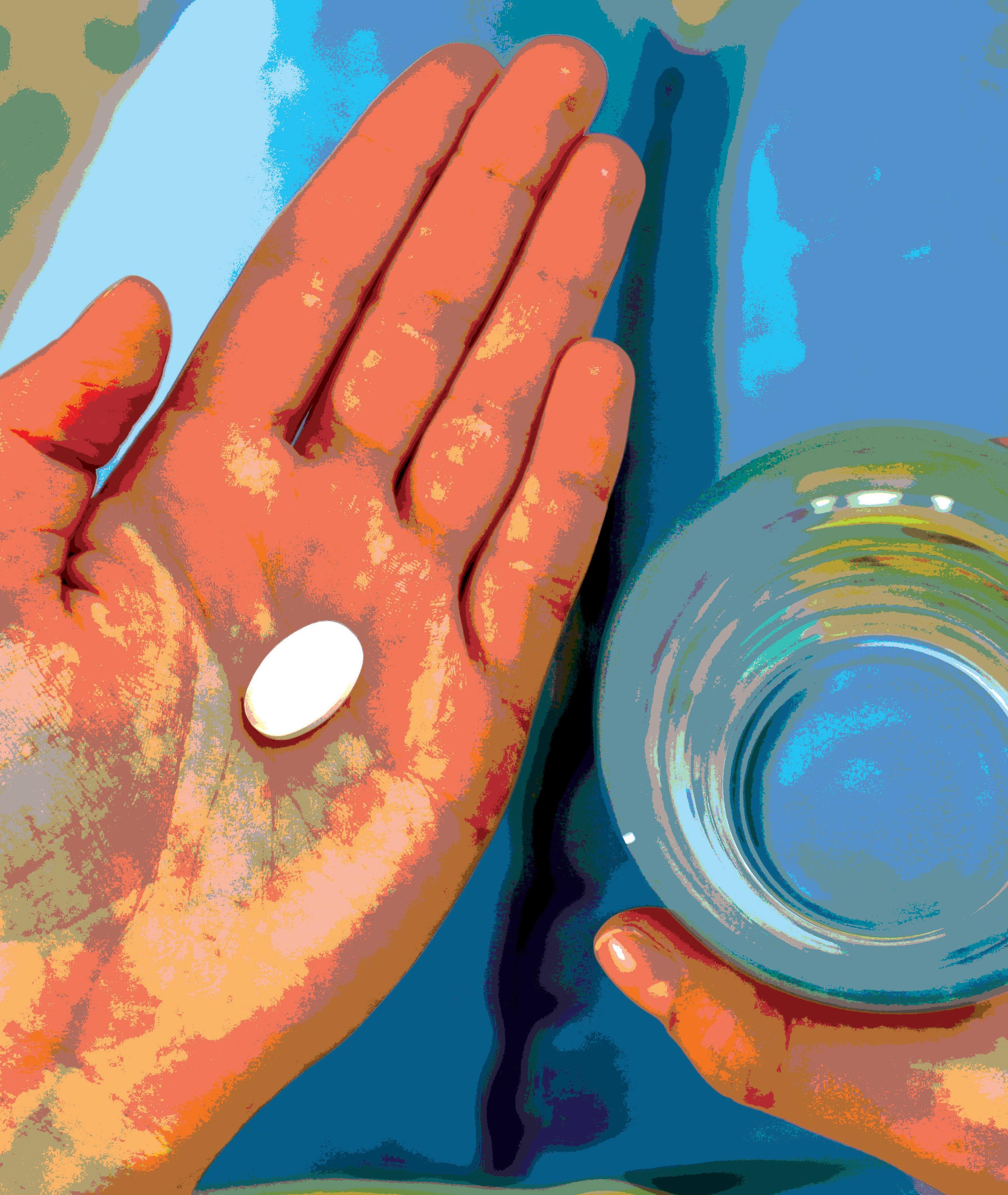
Rebecca had eight months to go before finishing nursing school and was in an unhealthy relationship when she found out she was pregnant. She had no car and little income, and she certainly did not feel ready to have a baby. Her first thought was that all she needed to do was take a pill and the rest would be history, with no one needing to know. It all seemed to be the right thing to do, until she actually took the mifepristone drug (RU-486) to abort the baby.
“I began to think about how this world is only for a short while, but my choice to abort this baby would be eternal,” she said. It was evident to her that she had made a mistake, but she did not know how to reverse this action. After an online search took her to the hotline from the Abortion Pill Reversal website, she confirmed with a nurse that reversal
in with the goal to save lives, like the life of Rebecca’s baby. In healthcare, we have the privilege of helping people at some of their most vulnerable points, while also being a shining light into their darkness. For many women, that moment arrives for them after they have taken mifepristone with the intention of ending their pregnancy.
Many pro-life advocates rightly rejoiced when the U.S. Supreme Court overturned Roe v. Wade in the Dobbs v. Jackson Women’s Health Organization decision in June 2022. No longer would abortion be seen as a guaranteed right in our Constitution. However, the issue is now sent back to the states. In the recent midterm elections, abortion measures were voted on in five different states, the outcomes favoring the pro-choice viewpoint in all five. In 2019, the most recent year with statistics from the U.S. Centers for Disease Control and Prevention, more than 600,000 U.S. women had an abortion,2 a slight increase from the year be-
can happen, and this baby could be saved. She was connected to a physician, who compassionately met with her, answered her questions and was used by God to shine a light on the path Rebecca could take. She started the progesterone protocol, had healthy, routine prenatal visits and delivered a baby at eight pounds, one ounce with Apgar scores of eight and nine.
“He was gorgeous,” Rebecca remembered. “He takes my breath away every day.” After the birth of her baby, she went on to complete nursing school, and she also saw God provide for the needs and concerns that first flooded her mind upon becoming pregnant.1
Like me, you probably entered the healthcare field because you wanted to help people like Rebecca who were in significant need, who were facing challenges and for whom you could have a substantial positive impact. You may have gone
fore. According to the Guttmacher Institute (a pro-choice organization), 54 percent of abortions in 2020 were done with mifepristone, the first time the majority of abortions occurred in this manner.3 The number will likely continue to increase as some states will try to further restrict abortion access, and as many women can access these pills without ever seeing a healthcare professional in person or getting an ultrasound. Telehealth services to provide this have continued to abound.
While the pro-choice movement will tout that mifepristone is safer than acetaminophen (for the mother), numerous complications are possible and expected, including prolonged bleeding, pain, hemorrhage, nausea, weakness, vomiting, diarrhea and dizziness. At least 24 deaths have been reported, some due to an unusual clostridium infection, and others due to ruptured ectopic pregnancies that had not been evaluated by ultrasound.4
Clear evidence exists of the negative effects of abortion on mental health.5 Women in the throes of discovering an unplanned pregnancy are frequently facing extremely difficult circumstances. They are often scared, thinking their future will be ruined or at least undesirably altered. They may be pressured by a partner or their parents to end the pregnancy, eventually turning toward taking a pill with the goal of emptying their uterus and letting things get back to “normal.” In the midst of this crisis, many of these women are turning to mifepristone to end the pregnancy. As could be expected, after
tors, it was postulated that giving large doses of progesterone could prevent the mifepristone from causing an abortion, with the understanding that the misoprostol is not given. In 1989, S. Yamabe demonstrated the effects of progesterone preventing the feticidal effects of mifepristone in rats.6 Dr. George Delgado eventually founded the Abortion Pill Reversal program after a small initial study on six women, and he later published a study on 754 women demonstrating a 64 to 68 percent success rate of his progesterone protocol for allowing women who had taken mifepristone to carry a healthy pregnancy to term. The
You can learn more about the Abortion Pill Reversal network and certification at www.abortionpillreversal.com. Also, more medical information about the Abortion Pill Reversal is available from the American Association of Pro-life Obstetricians and Gynecologists at www.aaplog.org Plus, CMDA’s new Obstetrics and Gynecology Section seeks to educate, encourage and equip Christian practitioners in obstetrics, gynecology and women’s health by demonstrating the love and compassion of the Lord Jesus Christ. Learn more at www.cmda.org/specialtysections
having taken the pill, some women have second thoughts and wish they could reverse the decision they just made, just like Rebecca did. One of the websites they might land on is www. abortionpillreversal.com.
Mifepristone is a competitive antagonist at progesterone receptors, causing a separation of the decidua basalis from the trophoblast, and thereby being the primary cause of death for the fetus. Since mifepristone alone typically terminates the pregnancy only about 70 percent of the time, it is usually followed in one to two days by administration of misoprostol, to cause contraction of the uterus and dilation of the cervix. Since mifepristone is a competitive antagonist of progesterone recep-
rate of birth defects of these children was no different than the general population.7
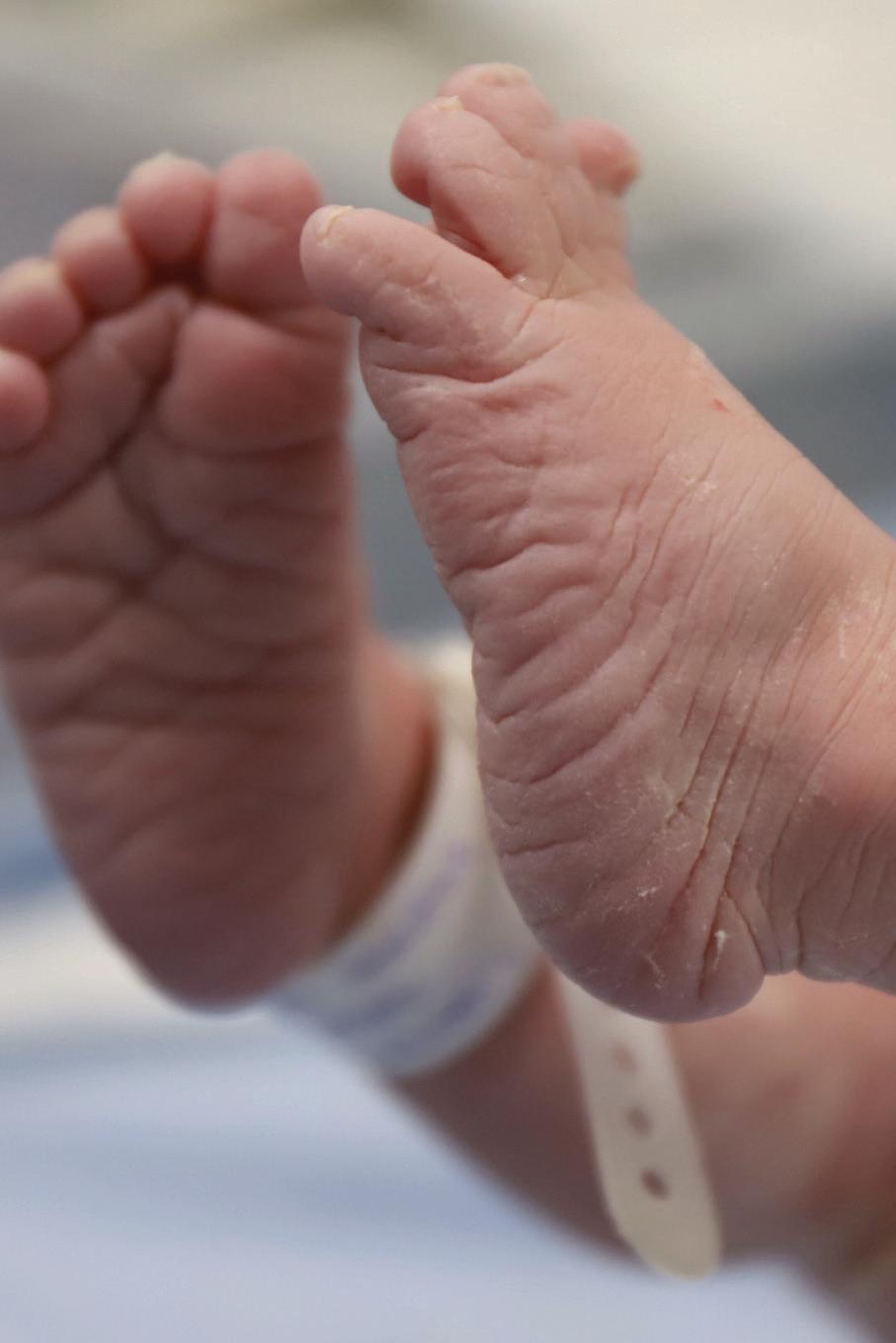
Opponents of this treatment will argue that the progesterone protocol is not evidence based. The gold standard for evidencebased medicine is the randomized placebo-controlled trial. It is obvious to anyone that this kind of study could never be ethically done in this population. A woman wanting to save her at-risk baby from the abortifacient effects of mifepristone could not be given a placebo pill in place of progesterone. The study done by Dr. Delgado demonstrated both the safety and efficacy of the progesterone when compared to general pregnancy statistics or what would happen if no intervention was taken. Pro-choice ad-

vocates will cite a small study on abortion pill reversal that was stopped due to significant bleeding in three participants, but they do not include the fact that the two bleeding cases requiring surgical intervention actually occurred in the placebo group.8 It should also be noted that using progesterone in early pregnancy to prevent miscarriage in high-risk patients has long been a common practice. Since obstetricians have been trained to treat patients with this medication to help patients with a high risk for spontaneous abortion, it can be considered a reasonable therapy to help patients who started an elective abortion as well.
is an incredible opportunity both for the pregnant mother as well as for those who would ultimately parent the child.
Psalm 82:3 calls us to “…uphold the cause of the poor and oppressed.” The in-utero child is the most vulnerable, weakest member of our society. Helping others around us to see this child as a legitimate human being with equal value to those who have been born is paramount and part of fulfilling the call God has placed on His people. We will not win every legal battle trying to protect their rights, but it is our duty to lovingly engage those who are in darkness and to staunchly defend the rights of these most precious children. We also have tools at hand that can be actively used to save a life and save a mother and father from a lifetime of regret for a hasty decision.
Consider and pray about whether God is calling you to join or support the Abortion Pill Reversal network, so you could help these patients in their most vulnerable moments. And spread the word to others who could also become part of this team, such that we as Christian clinicians can be ready for the call.

1 You can find Rebecca’s full story at https://abortionpillreversal.com/ abortion-pill-reversal/success-stories/5-rebecca, along with those of many others.
2 Centers for Disease Control and Prevention. (2019). Abortion Surveillance —UnitedStates,2019|MMWR-CentersforDiseaseControlandPrevention. https://www.cdc.gov/mmwr/volumes/70/ss/ss7009a1.htm
3 Guttmacher Institute. (2022). Medication Abortion Now Accounts for More Than Half of All US Abortions. https://www.guttmacher.org/ article/2022/02/medication-abortion-now-accounts-more-half-allus-abortions
4 AAPLOG. Medical Management of Elective Induced Abortion. (2020). https://aaplog.org/wp-content/uploads/2020/03/FINAL-PB-8Medical-Management-of-Elective-Induced-Abortion.pdf
5 Pubmed. The abortion and mental health controversy: A comprehensive literature review of common ground agreements, disagreements, actionable recommendations, and research opportunities. (2018). https://pubmed.ncbi.nlm.nih.gov/30397472/
6 Pubmed. The effect of RU486 and progesterone on luteal function during pregnancy. (1989). https://pubmed.ncbi.nlm.nih.gov/2776921/
7 Issues In Law and Medicine. A Case Series Detailing the Successful Reversal of the Effects of Mifepristone Using Progesterone. (2018).
8 Medscape. Abortion Reversal Study Stopped Early for Severe Bleeding. (2019). https://www.medscape.com/viewarticle/922564?icd=ssl_login_ success_221117

Pro-life proponents are frequently accused of saving the life of the baby but not caring about anything else, including the longterm outcomes for the parents involved or the child that is born. However, we must realize that the Abortion Pill Reversal protocol is only the first step in a long journey for mom, dad and others. Families can be referred to local crisis pregnancy centers, which have traditionally done an excellent job coming alongside of parents during this journey and have helped provide resources to further empower them as they nurture the child. A like-minded obstetrician should be utilized who can be supportive of the family and sensitive to the circumstances surrounding the pregnancy. Many parents will still have significant difficulties caring for a newborn baby or the childhood that is to follow. Adoption
Eric Hussar, MD, is a board-certified family medicine physician practicing in Marietta, Pennsylvania. He graduated from Temple University Lewis Katz School of Medicine in 2002 and completed a residency at Lancaster General Hospital. He has enjoyed caring for patients ranging from pre-birth to 100 years for more than two decades and is the Pennsylvania Director of the American Academy of Medical Ethics. He relishes outdoor activities and athletics with his wife and six children. God’s grace and love have remained ever present through his journey.
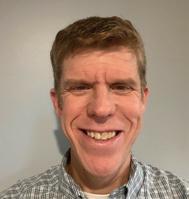
Moral distress and moral injury are relatively new terms, but the problems they reflect are ancient. They address the need to face moral challenges with the integrity of an undivided heart1. Moral distress occurs when serious ethical choices are burdened by forces that constrain (or threaten to constrain) a person’s moral agency. Situations involving moral distress affect our moral identities and consciences; they require careful assessment, dialogue, and accurate understanding of contextspecific roles and responsibilities. When unresolved, moral distress may lead to moral injury, compartmentalization (loss of individual integrity), and burnout. Moral distress involves the present, in which actions are still open to decision. Moral injury involves the past, in which completed decisions have negative moral effects that create discomforting memories and negative feelings. Moral injury arises after a person commits, participates in, or observes an action that violates the person’s core ethical beliefs. This may result in moral feelings of guilt and shame and a sense of moral failure. The experience of moral injury is not always preceded by an experience of moral distress.
Moral distress and moral injury are directly related to conscience which by God’s grace helps us overcome constraints that threaten our ability to do what is morally good and right, and which motivates us toward reconciliation and forgiveness after we have failed to do what we should have done. In response to moral distress, conscientious practice allows us to exercise our moral agency as God’s image bearers and live with an integrity that harmonizes our beliefs, values, words, and actions.
Christian healthcare professionals realize that being faithful in morally distressing situations may bring suffering, but we believe that Christ’s faithfulness to us in suffering leads to endurance, character, and hope (Romans 5:1-5). By relying on God’s strength and trusting in his providence and mercy, we are empowered with endurance in the face of moral distress, and we see in the suffering of moral injury the need for God’s healing and, when there is guilt, forgiveness. As Christian healthcare professionals, we should show compassion to colleagues who experience moral distress and moral injury, and we should encourage each other towards ever greater reliance on God’s grace for the strength to endure in the midst of adversity.
1. Moral distress occurs when a person’s moral agency is constrained. Moral distress first appeared as a concept in the nursing literature in reference to the experience of psychological distress associated with a morally challenging situation in which a constraint of some kind prevents people from acting according to what
they know or believe is right (Jameton, 2017; McCarthy & Deady 2008).
a. Some constraints are internal to the person, such as fear, lack of resolve, or misperception.
b. Other constraints are external to the person, such as obstacles imposed by supervisors, people in authority, institutions, policies, or laws. When constraints are external, the moral problem is that circumstances (people, structures, or systems) impede a person’s ability to use his or her moral agency to fulfil a perceived ethical obligation to act in a way that is believed to be right and good.
2. The literature on moral distress reveals heterogeneity in how the concept may be interpreted (Morley et al. 2019). Nevertheless, there are good reasons to follow the standard account of moral distress that is defined by constraints on moral agency and its consequences (McCarthy & Monteverde 2018). This interpretation focuses attention on the personal distress that is experienced when serious ethical choices are burdened or impeded by forces strong enough to constrain (or threaten to constrain) moral agency.
3. To qualify as moral distress, the rightness and significance of an impeded action ought to be clear to the person involved and reach a sufficient level of ethical seriousness, recognizing that the determination of this level will vary among persons based on circumstances and differences of conscientious assessment (see CMDA statement on Conscience in Healthcare).
a. Discerning this level of clarity and ethical seriousness can be difficult, and an individual’s moral assessment ultimately rests in the conscience of the individual.
b. Ethically serious situations should involve substantial matters of right and wrong that pertain to our core moral commitments and identities as moral agents.
c. When this level of seriousness has been reached, the individual should strive to explain the moral basis of the assessment as part of the work of conscientious practice.
d. The assessment should be informed and justified by an accurate understanding of the individual’s role and responsibilities in the situation.
4. To avoid applying moral distress too broadly, situations that cause moral distress should be distinguished from other morally challenging circumstances, such as moral uncertainty, moral disagreement, or moral dilemmas.
a. A situation should not be considered an instance of
CMDA Ethics Statements like this are designed to provide you with biblical, ethical, social and scientific understanding of today’s issues through concise statements articulated in a compassionate and caring manner. Visit www.cmda.org/ethicsfor more information about CMDA’s Ethics Statements and to review all of the statements.
moral distress just because it is morally troubling.
b. Many moral challenges will be experienced as stressful because they are difficult, not because they involve the kind of constraints that define cases of moral distress.
c. Many ethical disagreements and dilemmas need to be engaged as moral challenges, even though they do not include the impediments characteristic of moral distress.
i. For instance, when a patient and physician disagree about the best course of treatment, such a disagreement may be very stressful, but it should not routinely be seen as an instance of moral distress because a patient’s freedom to disagree with a physician is ethically legitimate (so long as it does not include an effort to coerce a physician to participate in an action that goes against his or her conscience).
ii. Such disagreements do not represent an internal or external constraint as reflected by the concept of moral distress; rather, they are an outcome of the bilateral moral agency that characterizes the patient-physician relationship, however uncomfortable that outcome may feel.
5. Moral injury is a related concept that describes the distress individuals experience “when they perpetrate, witness or fail to prevent an act that transgresses their core ethical beliefs” which, when severe, “may erode their sense of meaning and place in the world, even challenging their faith” (Jones 2020, p. 127). The concept of moral injury was developed in literature that discussed the psychological and spiritual trauma combat soldiers experienced after acting (or consenting to others acting) in ways that violated their most deeply held moral beliefs and values (Kinghorn 2012). The concept of moral injury can also be applied to healthcare professionals (Koenig HG & Al Zaben 2021; Mantri et al. 2021).
6. Moral injury involves the past: the time for action (or inaction) in the situation is gone, and the burden of events and completed choices lingers with discomforting memories and negative feelings. By contrast, moral distress involves the present: the situation is still open to decisions and actions that can impact outcomes.
7. Moral injury can have many features, including a sense of guilt, shame, moral failure, betrayal and lost trust, loss of meaning, difficulty forgiving oneself, selfcondemnation, religious struggle, and weakening or loss of religious faith or hope (Koenig HG & Al Zaben 2021).
8. Both moral injury and moral distress cause suffering because there is a conscience-driven awareness that things are not as they should be, or should have been, and often because the individual involved believes he or she has (or had) an obligation to act rightly.
9. When moral distress is unresolved, it can lead to nega-
tive outcomes.
a. It can lead to moral injury when individuals bear the burden of a morally traumatic experience that may or may not include a sense of guilt for past actions or inactions that are recognized to have been wrong.
b. It can lead to harmful compartmentalization when an individual tries to avoid the discomfort of moral distress by conforming to the requirements of a specific context (e.g., workplace) even though those requirements contradict the individual’s core beliefs and values. This kind of compartmentalization results in a loss of integrity that is essential for an individual’s moral agency (MacIntyre 1995).
c. It may cause or exacerbate burnout.
i. Burnout is described as a psychological syndrome that represents “a prolonged response to chronic interpersonal stressors on the job” (Maslach & Leiter 2016, p. 103).
ii. Burnout is understood as having three possible dimensions: (1) overwhelming exhaustion, (2) feelings of cynicism, detachment, or depersonalization, and (3) a sense of ineffectiveness (Maslach & Leiter 2016).
iii. Moral distress and moral injury can be expected to contribute to all dimensions of burnout and especially to feelings of cynicism when there is a gap between the values of the individual and the values (spoken or unspoken) of the workplace (McCarthy & Monteverde 2018; Dzeng & Curtis 2018).
1. For a full description of conscience, see the CMDA statement on Conscience in Healthcare.
2. Conscience is a God-given endowment that enables us to know and respond to moral truth (Genesis 1:27; Romans 2:15). To live by conscience is to live with integrity (1 Kings 9:4; 2 Corinthians 1:12; Psalm 86:11) – with pure hearts (Matthew 5:8; 1 Timothy 1:5) and transformed minds (Romans 12:1-2; 2 Corinthians 3:18) that seek to love God and our neighbor (1 Corinthians 10:23-24; 1 Timothy 1:5) in keeping with Scripture (Deuteronomy 5:6-21; Deuteronomy 6:5; Psalm 119:111, 144; Mark 12:30-31; 2 Timothy 3:16-17) and the Holy Spirit’s guidance (Luke 11:913; 1 Corinthians 2:16; Philippians 1:9-11).
3. Because conscientious judgments reflect our best moral understanding of what is good and right, we should always follow our consciences (Acts 24:16; 2 Corinthians 1:12; 1 Timothy 1:19; 3:9; James 4:17) even as we recognize that our consciences are fallible and ultimately under God’s judgment (1 Corinthians 4:3-4; Hebrews 4:12-13) and mercy (Psalm 68:19; Romans 14:4).
4. Because reason is essential in conscience (2 Corinthi-
ans 4:2; 5:11), Christians should be prepared to engage in moral deliberation and explain and commend the reasons for their conscientious actions to others. To live according to conscience is a fundamental moral and spiritual obligation for the Christian because we are called to hold on to faith and a good conscience (1 Timothy 1:18-19; 3:9).
5. Living conscientiously reflects the Christian’s duty and desire to put God’s kingdom first by pursuing what is true and right; living a life of love; fleeing immorality; and enduring suffering that produces perseverance, character, and hope (Matthew 6:33; Acts 5:29; Philippians 4:8; Ephesians 5:1-11; 1 Timothy 6:11-12; Hebrews 12:1-11; Romans 5:1-5).
6. Moral distress is directly related to conscience. In fact, the experience of moral distress can be seen as part of the perceptive work of conscience when we are faced with a moral challenge and encounter internal or external constraints that impede our ability or willingness to do what we know is morally good and right.
a. To experience moral distress is a manifestation of an active and unsettled conscience.
b. The experience of moral distress is illuminated by understanding the three dimensions of conscience: reason, emotion, and motivation (see statement on Conscience in Healthcare). These three dimensions allow us to understand, feel, and do what we believe is good and right.
c. The experience of moral distress can be seen as reflecting these three dimensions of conscience through:
i. an intellectual understanding that something is morally wrong;
ii an emotional feeling of discomfort related to that moral wrong and our responsibility to respond to it;
iii. a motivational desire to do what is right in response to that moral wrong.
7. In the same way that each person’s conscience has Godgiven authority for that person which sets it above the judgments of other human beings (see CMDA statement on Conscience in Healthcare), each person must determine for himself or herself whether a stressful situation qualifies as an instance of moral distress. Such discernment should conform with God’s Word (Psalm 119:111, 144; Mark 12:30-31; Romans 12:1-2; 2 Timothy 3:16-17); and because of the challenges inherent in moral discernment, it should be accepted that Christians may sometimes reasonably disagree about whether a given situation should be understood as being an instance of moral distress (I Corinthians 4:3-4; Galatians 6:4-5).
1. The proper response to moral distress is conscientious practice, by which we exercise our moral agency as God’s image bearers and live with the integrity of an undivided heart (1 Kings 9:4; 2 Corinthians 1:12;
Psalm 86:11) that demonstrates coherence across our beliefs, values, words, and actions.
2. Conscientious practice may involve doing or saying what is good, right, and true, or it may involve a refusal to participate in or cooperate with evil (see the sections on ‘Conscientious Practice in Healthcare’ and ‘Complicity with Evil’ in the CMDA statement on Conscience in Healthcare).
3. Conscientious practice by the Christian healthcare professional must be motivated by love of God and neighbor (1 Corinthians 10:23-24; 1 Timothy 1:5) and demonstrated by Christian virtues (Matthew 5-7; Romans 13:8-10; 1 Corinthians 13; Galatians 5:2223; Colossians 3:12-14).
4. Conscientious practice should be guided by wisdom (Philippians 1:9-11) and moral deliberation (Galatians 6:4-5) to discern how our decisions and actions, as Christians, ought to reflect the biblical beliefs and values on which they are based. Christians should be encouraged to seek counsel from fellow believers who have wisdom in matters of moral and spiritual discernment (1 Corinthians 12:7-11).
5. Moral communication and dialogue are essential parts of conscientious practice in healthcare. Communicating the beliefs, values, and reasoning that guide our moral assessments clarifies our thinking, demonstrates respect to others by giving them reasons, invites feedback and mutual criticism, and helps strengthen us as we speak truthfully about what we believe is right.
6. When moral distress is engaged by moral communication that leads to genuine dialogue and deliberation, one or more forms of resolution can be expected. Moral communication may lead to:
a. Clarification of misunderstandings pertaining to roles, requirements, decisions, goals, or alternative possibilities.
b. Recalibration in the mind of the morally distressed person who becomes persuaded and thereby reassured by new information, good counter arguments, or better insights.
c. Recusal by the morally distressed person when disagreement persists but reasonable accommodation is made by adjusting roles and responsibilities. (Kaldjian 2021)
7. Being a faithful witness to what is true, good, and right may bring suffering (1 Peter 2:20). But the Christian knows that Christ’s faithfulness to us in suffering leads to endurance, character, and hope (Romans 5:3-5), and that when God brings us trials and desperation, he does so to teach us to rely not on ourselves but on him (2 Corinthians 1:8-9), and to trust in his grace, mercy, and faithfulness (Psalm 37:1-9, 39-40; 1 Corinthians 10:13; 2 Corinthians 12:9).
8. This fundamental reliance on God’s strength and trust in his loving providence is the basis of the Christian understanding of endurance and resilience in the face of moral distress and adversity (Psalm 145:14-20;
Matthew 6:25-34; Romans 8:28-39; Ephesians 6:10).
1. Moral distress that is unresolved may lead to moral injury from the burdens of morally traumatic experiences that may or may not include a sense of guilt for past actions or inactions that are recognized to have been wrong.
2. Moral injury is an experience that in some respects can be viewed as a traumatic event, the outcome of which may be profoundly negative and long-lasting, but need not be. Factors associated with the resilience that leads to posttraumatic growth may be relevant to moral injury, and these include finding meaning in adversity, gratitude, the ability to forgive, willingness to seek social support, and the ability to follow one’s own moral compass (Thielman 2019).
3. Persons struggling with the symptoms of moral injury should be encouraged to seek appropriate psychological and pastoral care, especially when suffering interferes with their relationships with God, family, friends, or colleagues.
4. Christian health professionals suffering from moral injury should be encouraged to pray and seek wise counsel, support from fellow believers, and pastoral care in the confidence that God hears our cries of distress, that he is compassionate, that he forgives and cleanses us from our sins, and that his love works to redeem our traumatic experiences and moral failures by the healing power of his grace (Psalm 31:1-10; Psalm 42; Psalm 55; Psalm 91:15; Psalm 103; 1 John 1:9; Ephesians 1:7-8; James 5:13-16).
5. As Christians, we should be encouraged to rely on all of Scripture, especially the Psalms, to grow in our ability to pray to our heavenly Father before, during, and after times of moral distress or moral injury. Through prayer we can give voice to distress, direct our thoughts to God in the midst of struggle, find God’s meaning in the midst of adversity, cultivate gratitude and hope, and develop the Christian virtue of endurance (Thielman 2019). In such prayer we seek to grow in the grace and knowledge and joy of our Lord and Savior Jesus Christ (Romans 5:1-5; Colossians 1:9-14; 2 Peter 3:18), who promises to love and reveal himself to us as we show our love for him by obeying his commandments (John 14:21).
1. Healthcare professionals and institutions should know the characteristics of, and common circumstances associated with, moral distress and injury so that these experiences can be recognized and addressed. Awareness of these characteristics can be assisted by reviewing the contents of instruments used to measure moral distress and injury (Allen et al. 2013; Epstein et al. 2019; Mantri et al. 2021).
2. When healthcare professionals experience moral distress or injury and are unable to resolve or experience healing of their moral discomfort, they should seek guidance and support from trusted colleagues, loved ones, or knowledgeable professionals, depending on the nature of their need and the availability of persons who are able to provide the help that is needed.
3. Healthcare professionals should try to cultivate moral resilience in their lives so that they are better able to respond to morally challenging situations. Cultivation of moral resilience may include fostering more self-awareness, developing more ethical competence, speaking up with greater clarity and confidence, finding meaning in the midst of adversity, engaging others, and making efforts to contribute to a culture of ethical practice in their work environment (Rushton 2016).
4. Healthcare institutions should support policies and practices that minimize the likelihood of moral distress and moral injury by (a) addressing ethical issues through quality control, quality improvement, and root cause analyses; (b) encouraging debriefing meetings after morally demanding events; (c) supporting ethics consultation services; and (d) respecting the need for conscientious practice. Healthcare institutions should expect to observe a relationship between moral distress and burnout (Dzeng & Curtis 2018), making the need for an ethically supportive institutional culture all the more urgent.
1. CMDA affirms that Christian healthcare professionals should take moral distress and moral injury seriously because we are called to live with a good conscience.
2. CMDA affirms that Christian healthcare professionals should understand moral distress as a response of conscience when facing constraints that impede our ability to do what is good and right.
3. CMDA affirms that Christian healthcare professionals should understand moral injury as a form of suffering that needs God’s healing and, when there is guilt, forgiveness.
4. CMDA affirms that Christian healthcare professionals should show compassion to colleagues who experience moral distress and moral injury through listening, wise counsel, prayer, and encouragement toward pastoral care.
5. CMDA affirms that God is with us in the midst of every adversity and uses moral distress and moral injury to make us more reliant on his grace, to increase our endurance as Christians, and draw us closer to him.
6. CMDA affirms that healthcare institutions should (a) recognize that moral distress and moral injury may occur in all healthcare professionals; (b) respect the need for conscientious practice by healthcare professionals; (c) remedy causes of moral distress and moral injury; and (d) offer appropriate resources to mitigate harms from moral distress and injury.
FOUR EXAMPLES OF MORAL DISTRESS AND MORAL INJURY
(1) Dishonesty about prognosis (moral distress)
A nurse is caring for a man in the ICU who has a poor prognosis. The nurse is troubled because the attending physician acknowledges the patient’s poor prognosis when speaking privately with the care team but nevertheless declines the nurse’s request that there should be an honest conversation with the patient about his prognosis. The attending voices concerns that the patient might lose hope and decide against ongoing plans for life-sustaining treatment if there is a candid discussion of prognosis. The nurse believes the patient has a right to know the seriousness of his prognosis but feels powerless to say what she believes needs to be explained to the patient.
(2) Gender reassignment procedures and pronouns (moral distress)
A medical student has just started her ambulatory care rotation and learns that during the rotation she will be assigned to work one afternoon in a transgender care clinic. She wants to be able to help all patients who need care, regardless of their feelings about their sexual identity, but she does not think that hormonal and surgical treatments are the appropriate way to provide care for persons with gender dysphoria. As she thinks more and more about the implications of working in the transgender care clinic, she becomes increasingly disturbed by the prospect of being expected to use patients’ preferred pronouns that contradict their biological sex, and to participate in counseling discussions that support treatments she cannot endorse in good conscience.
(3) Non-disclosure of medical error (moral distress and moral injury)
A patient with multiple medical problems is stable and receiving treatment on a general medical service. The patient’s condition unexpectedly deteriorates and requires transfer to the ICU. Diagnostic evaluation reveals the patient has suffered a myocardial infarction complicated by congestive heart failure. Review of the patient’s medications in the 48 hours prior to ICU transfer reveal a serious medication error, which provides the most likely explanation for the adverse cardiac event. The ICU resident asks the ICU attending how they should handle the disclosure of the medication error to the patient, since the
resident believes patients are entitled to know about medical errors in their care, especially serious errors. The ICU attending says it would be better to avoid talking about the medication error, since it is not completely clear that the medication error led to the adverse cardiac event. The ICU resident is surprised and troubled by his attending physician’s response but does not feel it is his place as a resident to go against his attending physician. Years later, the resident (now a practicing physician) is disturbed by the memory of his unwillingness to question his attending physician and believes he failed to do what he should have done to try to find a way to ensure that the patient was informed about the medication error.
(4) Referral for abortion (moral distress and moral injury)
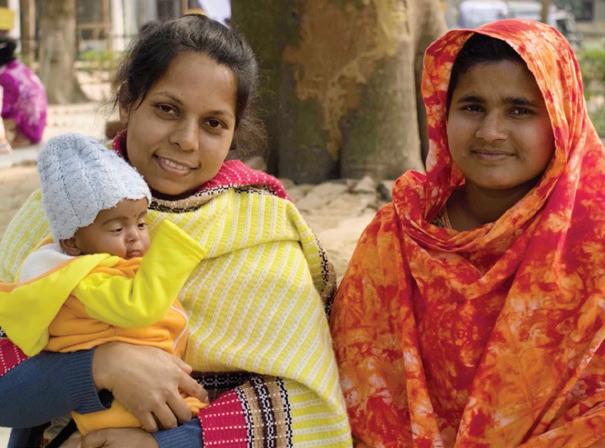
A resident is working in an ambulatory clinic. One of her patients is a young woman presenting for a routine follow-up visit. Toward the end of the appointment, she discloses to the resident that she is pregnant and would like a referral for an abortion. The resident is caught off guard by this unexpected request. The resident believes abortion is wrong and wonders what to say, not wanting to sound insensitive or confrontational, but also not wanting to give her patient the impression that she thinks abortion is morally acceptable. After respectfully inquiring about the patient’s request and feelings about her pregnancy, the resident, who is pressed for time, reluctantly provides a referral to a nearby clinic that provides abortions. The following week the abortion is performed. Years later, the resident (now a practicing physician) continues to be disturbed by the memory of the encounter with this patient because she, the resident, believes she played a role in the series of events that led to the abortion, making her morally complicit in an act she knew was wrong.
Approved by the House of Representatives Passed with 42 approvals, 0 opposed, 0 abstention October 22, 2022, virtual
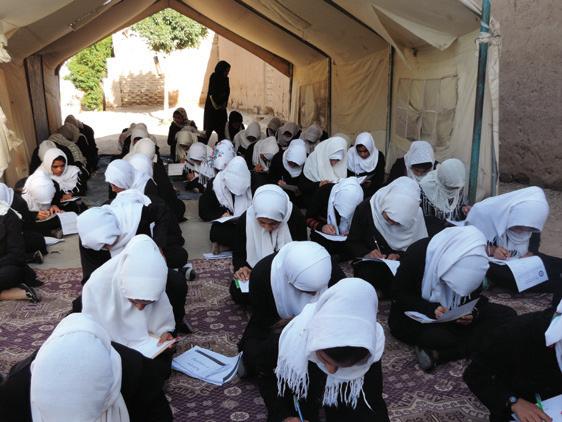
understanding of moral distress: the measure of moral distress for health care professionals. AJOB Empir Bioeth. 2019;10(2):113-24.
Jameton A. What moral distress in nursing history could suggest about the future of health care. AMA Journal of Ethics 2017;19(6): 617-28.
Jones E. Moral injury in a context of trauma. British Journal of Psychiatry 2020;216(3):127-8.
Kaldjian LC. Moral distress, conscientious practice, and the endurance of ethics in healthcare through times of crisis and calm. Journal of Medicine and Philosophy (accepted for publication).
Kinghorn W. Combat trauma and moral fragmentation: a theological account of moral injury. Journal of the Society of Christian Ethics 2012;32(2):57–74. Koenig HG, Al Zaben F. Moral injury: an increasingly recognized and widespread syndrome. Journal of Religion and Health 2021 Jul 10:1–23.
Maslach C, Leiter MP. Understanding the burnout experience: recent research and its implications for psychiatry. World Psychiatry 2016;15:103-111.
MacIntyre A. Social structures and their threats to moral agency. Philosophy 1995;74: 311-29.
Mantri S, Lawson JM, Wang Z, Koenig HG. Prevalence and predictors of moral injury symptoms in health care professionals. Journal of Nervous and Mental Disease 2021 Mar 1;209(3):174-180.

McCarthy J, Deady R. Moral Distress Reconsidered. Nursing Ethics 2008;15(2): 254-62.
McCarthy J, Monteverde S. The standard account of moral distress and why we should keep It. HEC Forum 2018;30(4): 319-28.
Morley G, Ives J, Bradbury-Jones C, Irvine F. What is ‘moral distress’? A narrative synthesis of the literature. Nursing Ethics 2019;26(3): 646-62.

Rushton CH. Moral resilience: a capacity for navigating moral distress in critical care. AACN Adv Crit Care 2016;27(1):111-9.

Allen R, Judkins-Cohn T, deVelasco R, Forges E, Lee R, Clark L, Procunier M. Moral distress among healthcare professionals at a health system. JONAS Healthc Law Ethics Regul 2013;15(3):111-8.
Dzeng E, Curtis JR. Understanding ethical climate, moral distress, and burnout: a novel tool and a conceptual framework. BMJ Quality & Safety 2018;27(10): 766-70. Epstein EG, Whitehead PB, Prompahakul C, Thacker LR, Hamric AB. Enhancing
Thielman, Samuel. Praying the Psalms: from trauma to resilience. In: Tackling Trauma: Global, Biblical, and Pastoral Perspectives (Paul A. Barker, ed). Carlisle, UK: Langham Global Library, 2019 (pp. 13-34).
Editor’s Note: Scriptures cited throughout this statement are available for download at www.cmda.org/ethics
the skills you developed were about something



On November 24, 2022, the National Post reported that one in six women in Canada have had an abortion, and most of them think they made the right choice and therefore do not need to repent. A mere 10 percent regret their abortion. If Christianity is true, then everyone needs the gift of repentance. The Lord’s Prayer implies that, like food, we need repentance daily for all our daily wrongdoings and those who refuse it jeopardize their souls and damage their lives. David Fergusson has shown that abortion is frequently a factor in depression;1 that should not surprise us. Therefore, to be morally rational and accepting of abortion (i.e., not in need of repentance), we must believe that the life taken in abortion is not sacred. Only in the last 50 years has abortion become legally easily available, so a little meditation is overdue.
A good starting point is government and philosophy professor J. Budziszewski’s comment that we are still logical, but slowly. Where false premises have been believed logical, thought will eventually demonstrate that. Quite clearly our culture has changed its views on the sacredness of human life and the logical consequences are becoming clear; there is a slippery slope from abortion to infanticide, to euthanasia, to assisted suicide. It can change again. Read The Hand of God by Bernard Nathanson for a moving account of how an abortion crusader changed his position, not because of spiritual angst but because ultrasound data convinced him of the humanity of the unborn. In the end he became a Christian.
The title of this essay indicates where I think the major change occurred. Flannery O’Connor referred to the southern part of the U.S. as “Christ haunted,” but there is a sense in which the entirety of the Judeo-Christian West was “Christ haunted.” Not anymore. She was wise in her choice of words, because most of us are not aware of how deeply we are indebted to the history that was given us, and Christ is central to that history.
Some years ago, Richard John Neuhaus wrote in First Things of a man going to a jeweler in New York desiring to purchase a cross, and the assistant (apparently innocently) asked whether he wanted a plain one or one with a little man on it. That is a breath-taking marker for our change to a post-Christian culture. Most Americans no longer have a capacity to recognize the innumerable biblical metaphors in our speech. Even the memory of the gift of starting with
a biblical story to find meaning we all need in our lives has faded. In contrast, the Founding Fathers were deeply aware and grateful, particularly John Adams who described the Constitution as being “for a religious people, wholly unsuited to any other.” Already, however, in that sentence the truthful word “Christian” has been replaced by the weasel word “religious.” Yoram Hazony, the orthodox Jewish founder of the National Conservative Conference, says that America was not founded by secularists, Jews, Muslims, Hindus or even Roman Catholics. It was founded by Protestants, by Christian people concerned to preach the gospel.
In the 1700s, as the American Founders thought about government, they assumed the biggest problem would be sinful pride and hubris, so they designed a separation of powers that makes government impossible without the art of compromise. They also knew central government control of daily life was impossible in such a large a country with limited communications, so much of the power would have to be exercised locally—and the doctrine of subsidiarity was born. It is illustrated in the recent abortion decision from the U.S. Supreme Court in Dobbs v. Jackson Women’s Health Organization. Maybe that is why America flourished. When French political philosopher Alexis de Toqueville came to America, he wanted to understand why America’s revolution had not been destructive like the
French debacle, and one of the main factors he posited as responsible was the role of local Christian churches that taught the population week by week what the Bible says.
What we remember is not so much theological argument but narrative. We remember the stories Jesus told, such as the Good Samaritan, the Prodigal Son and so many others. These stories seeped into the American soul, creating a culture and providing a basis for the formation of virtues. Kenneth Bailey’s books clearly show how culturally challenging these biblical stories are. In years past, we knew the Old Testament stories as well as the New Testament; stories that are brutally honest. Any Jewish child, raised to know the Old Testament history of the Jews, knows that leaders are fallible. “He did evil in the sight of the Lord” is a recurrent phrase. In contrast, we now teach children that they are basically good and can do whatever they want. Utopian dreams have always been tempting, and when they enter into the whole ethos of a society, they divide and destroy because they are false. That is what communism did. We are all fallen sinners, but God’s grace is available, and failure to accept this is always destructive.
The Protestant emphasis on the Bible led to the formation of a Christian character, which is almost imperceptible by individuals but forms the entire community. Some things we will not do, while other things we feel compelled to do. Most importantly, we do without analysis. We all inhabit a tacit world that is getting smaller for reasons beyond the space of this article.

Free association is one such very important idea. People living together work out their own ways of forming society. Usually this involved a great deal of discussion and mutual respect; the rule of the people, by the people and for the people is the result and is largely not written down. It can be traced back to common law beginning about the time of King Alfred (848-899), was codified in Magna Carta on June 16, 1215 and was further substantiated politically with the American Bill of Rights in 1789. Over 1,000 years ago when King Alfred had united the tribes to form England, traveling judges dealing with difficult cases were told to start with local ideas. The undiscussed foundations of these ideas were always biblical. Great societies have great books. They are essential to the society. Pagan societies were founded on The Book of Nature. Jews and Christians have the Bible; Muslims have the Koran; Hindus and Buddhists and their offshoots in the East all have a great book which provides a founding narrative for all their stories of meaning…pace multi-culturists, stories are not interchangeable; they are different. For example, when justice confronts a conflict between truth and loyalty, the Bible is the only great book that unequivocally puts truth above loyalty. Most other cultures put loyalty first, as most students do today.
The modern academic world cynically and foolishly says, “There is no absolute truth.” The right response to this is to ask, “Including that statement?” They refuse to honor truth but always imply they have it.
Everyone hates being the victim of a lie. Parents could not raise their children if they could not use the word “ought,” a word that implies objective moral truth. As Peter Kreeft puts it, “We are all ‘oughted.’” Ludwig Wittgenstein, more academically, says, “Ethics is a condition of man.” And here is how Arthur Leff describes the problem: “Without God as lawgiver we cannot avoid the question of who has the ultimate say. We have separated God from our legal and
political systems so that every legal and political decision can only be based on human will.” Writing nearly 50 years ago, Leff could already trace the scars being left on jurisprudential writings by this growing and terrifying realization. Why did he describe this as terrifying? Because without God, law and politics are necessarily about human power and only human power.
“True freedom is not the freedom to do what you wish but the freedom to do what you ought,” as Lord Acton said, and without undeniable premises given by God we have no legitimate “oughts” upon which to build justice. Instead, we have the woke culture of mob tyranny and virtue signaling.
Currently we are witnessing the attempt to make Critical Race Theory the basis of all law without reference to God. Yet God’s will is binding, because it is His will that it be so. Under what other circumstances can anyone else withstand the question, “Says who?” or, “On whose authority?”
To quote Leff again, “We are never going to get anywhere in ethical or legal theory unless we finally face the fact that, in the words of the Psalmist, there is no one like unto the Lord. If He does not exist there is no metaphoric equivalent. No person, no combination of people, no document however hallowed by time, no process, no premise, nothing is equivalent to an actual God in this central function as the unexaminable examiner of good and evil. The so-called death of God turns out not to be just His funeral; it also seems to have affected the total elimination of any coherent, or convincing ethical or legal system dependent upon finally authoritative extra systemic premises.” This is what terrified Leff 50 years ago, and it ought to terrify us.
“Put briefly, if the law is not a ‘brooding omnipresence in the sky,’ then it can be only in one place—in us. If we are trying to find a substitute final evaluator, it must be one of us, some of us, all of us—but it cannot be anything else.” This is what happens when we refuse to say in God we trust, and we will build our society on that basis.
1 Cambridge University Press. (2018). Abortion and mental health. https://www.cambridge.org/core/journals/psychiatric-bulletin/ article/abortion-and-mental-health/33C1F97815738ADFD60A1EA04D 5CB725
John Patrick, MD, studied medicine at Kings College, London and St. George’s Hospital, London in the United Kingdom. He has held appointments in Britain, the West Indies and Canada. At the University of Ottawa, Dr. Patrick was Associate Professor in Clinical Nutrition in the Department of Biochemistry and Pediatrics for 20 years. Today he is President and Professor at Augustine College and speaks to Christian and secular groups around the world, communicating effectively on medical ethics, culture, public policy and the integration of faith and science. Connect with Dr. Patrick at johnpatrick.ca. You can also learn more about his work with Augustine College at augustinecollege.org

To place a classified advertisement, contact communications@cmda.org.
Disciple-making Physicians — Do you long to see God work through your medical practice? We are the largest vasectomy reversal practice in the U.S. We plant God’s field for new birth in body and spirit. We train physicians spiritually and medically. If you proficiently enjoy simple skin suturing; if you want to make disciple-making disciples of Jesus among your patients; and if God is calling you to this work, we can train you in this medical ministry to fulfill the Great Commission. Come join us at our Warwick, Rhode Island location. We are also eager to talk with medical students about future clinic locations. Contact drdavid@thereversalclinic.com.
Family Medicine — FT/PT physician eager to serve God through the practice of family medicine is invited to join the New Creation Healing Center team in Kingston, New Hampshire, to heal the sick and share the gospel. Check out our website www.newcreationhc.org (click
opportunities) for more information. For package details, contact Mary Pearson, DO, at 603-819-3204 or via email at drmarygrace@hotmail.com. We love God and we love people!
General Dentistry — Naples Family Dentist in Naples, Florida is currently hiring a general dentist associate for two, three or four days per week with more than five years’ experience. We are a faithbased practice focusing on biological and holistic care. Our practice provides a full spectrum of dental services. Please visit our website for more information at www. naplesfamilydentist.com. We understand that in your lifetime, you’ll spend more hours with your coworkers than you will with your significant other. The right coworkers should feel like family. Your work environment impacts how you show up where it counts the most: at home. We make sure those hours at work are as enjoyable and fulfilling as possible. We provide a positive atmosphere, with owners who seek and receive input from our team. We entrust you to innovate with a great team—we don’t micromanage. For the right candidate, we’d love to invest in your growth and your well-being while you are working and providing excellent service for your patients. Requirements: open to coaching, mentorship, and performance management support (we’ve got your back); engaged in patient flow and patient experience; excellent communication skills; sound decision-making skills, and contributing back to our community; ability to multitask and take initiative; ability to drive a team and hold people accountable; and strong attention to detail. If you are looking for a wonderful work environment where you will be supported and encouraged, we would like to speak with you. Please send CV and contact information to Dr. Paul Mabe at paulmabe@me.com
OB/Gyn — Southwestern Medical Clinic, Center for Women’s Health is seeking full-time OB/Gyn to join our multi-disciplinary faith-based team. The preferred candidate will provide a full range of services. Enjoy a collaborative and collegial relationship with your colleagues! Over the last 50 years, Southwestern Medical Clinic of Lakeland has proudly served residents of Southwest Michigan
and under-served communities all over the world! Join a mission-minded team that is passionate about providing Christcentered medicine. Southwest Michigan is one of the most affordable places to live in Michigan, offering a relaxed quality of life, with a wide variety of outdoor and cultural activities only 90 minutes from Chicago. For more information, visit www.spectrumhealthlakeland.org/careers or contact Kelli.Dardas@spectrumhealth.org.
OB/Gyn — Dekalb Women’s Specialists is a private OB/Gyn practice serving East Metro Atlanta, Georgia for more than 30 years. We are searching for a BC/BE OB/Gyn physician or laborist. We are conveniently located five miles northeast of downtown Atlanta. Our Decatur location is well known for its excellent public school system, shopping and fine dining. Our practice currently has five board certified physicians, along with six board certified nurse midwives. We have three office work locations from which to choose from, and all are within 15 to 20 minutes from the hospital. We cover call at Emory Decatur Hospital, a tertiary hospital, part of the Emory Healthcare System. Emory is the most comprehensive health system in Georgia. Dekalb Women’s Specialists does not manage any unassigned patients from the ED. We offer a competitive physician’s compensation package with productivity bonuses and a partnership option. A signing bonus is available if the qualified candidate is able to make an immediate decision. Interested candidates may forward their CV and statement of interest to Mercy Amua-Quarshie, MD, at mercy.amuaquarshie@yahoo.com. Our practice website is www.dekalbwomen. com
OB/Gyn and Pediatrics — NeighborHealth Center is a thriving nonprofit, faithbased medical practice caring for a diverse range of patients among the underserved of Raleigh, North Carolina. As we have entered our fifth year, we are experiencing huge growth and we are seeking several positions including an OB/Gyn and pediatrician. For more information, visit www.neighborhealthcenter.org.


















We exist to glorify God by placing healthcare professionals and assisting them in finding God’s will for their careers. Our goal is to place healthcare professionals in an environment that will encourage ministry and also be pleasing to God.
We make connections across the U.S. for healthcare professionals and practices. We have an established network consisting of hundreds of opportunities in various specialties.











You will benefit from our experience and guidance. Every single placement carries its own set of challenges. We help find the perfect fit for you and your practice.



“Absolutely amazing!
I would not have found my job without CMDA Placement Services.”
— Rachel VanderWall, NP
“It’s a valuable source for colleagues who recognize that their calling to medicine is a calling to ministry.”
— The Jackson Clinic

